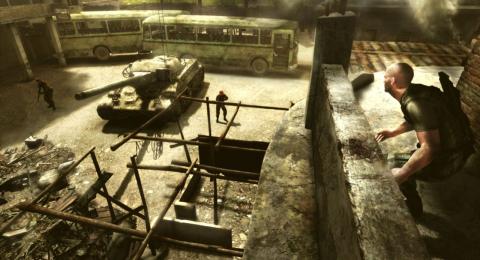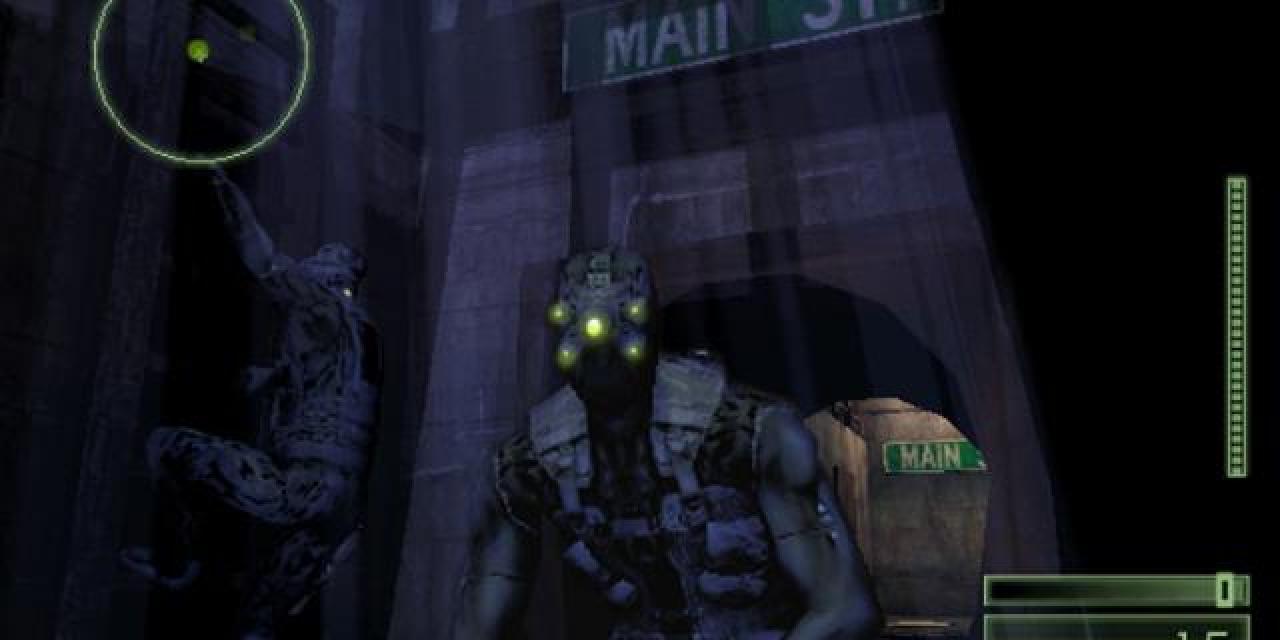
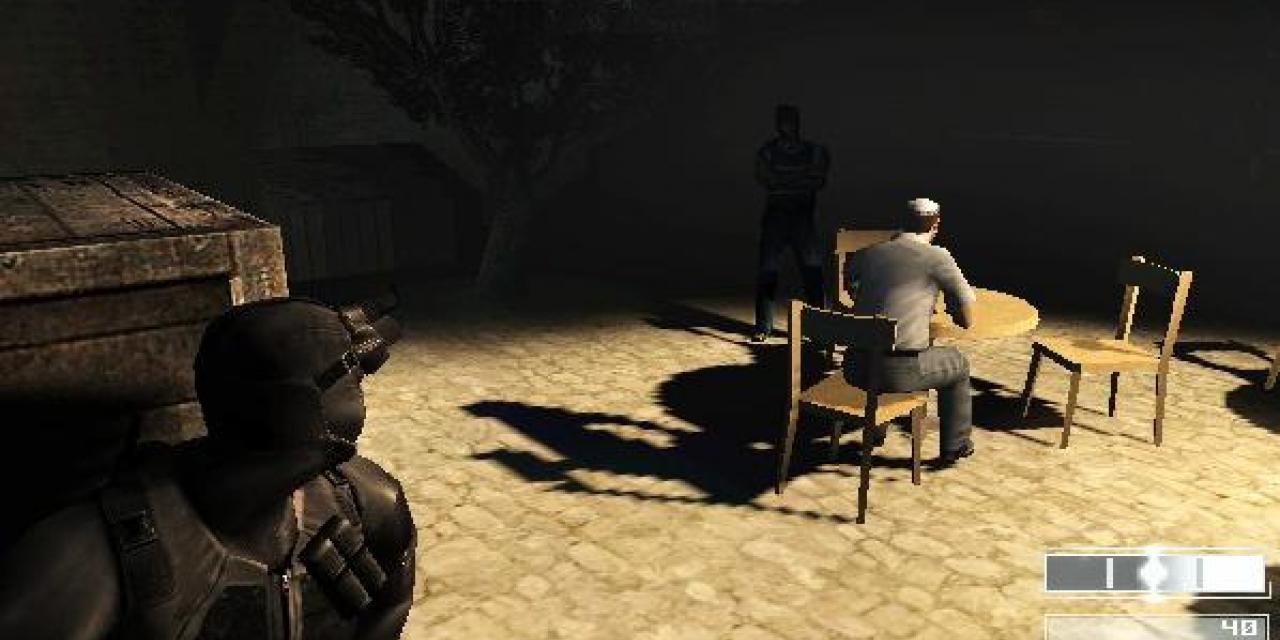
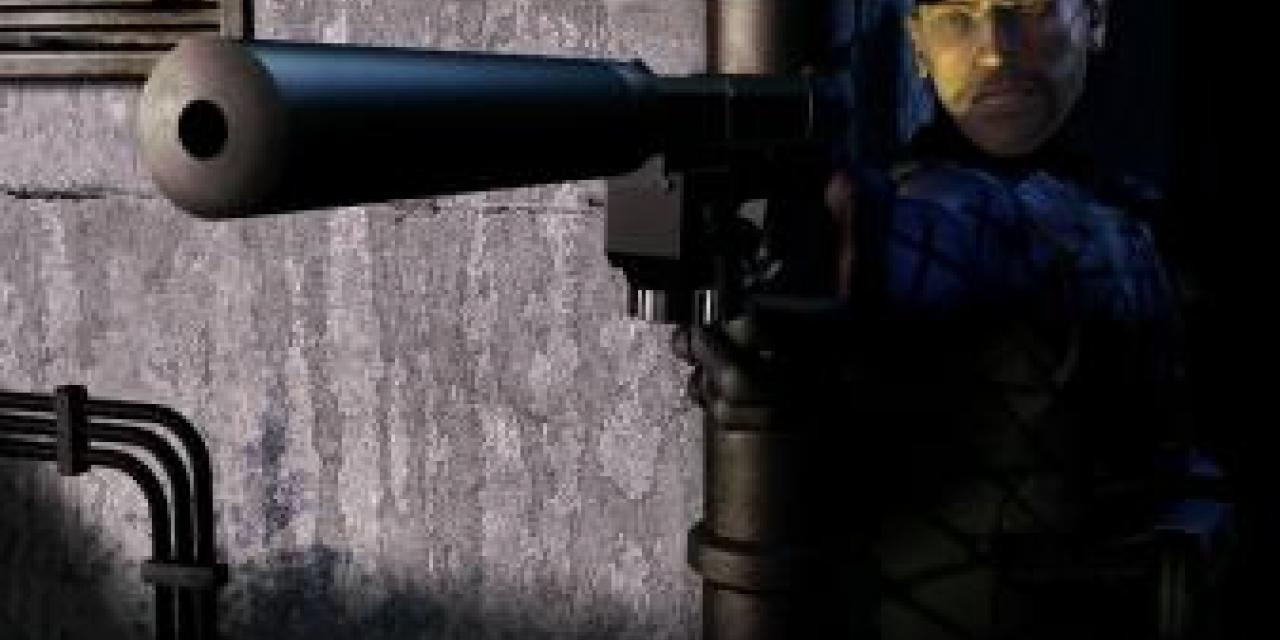
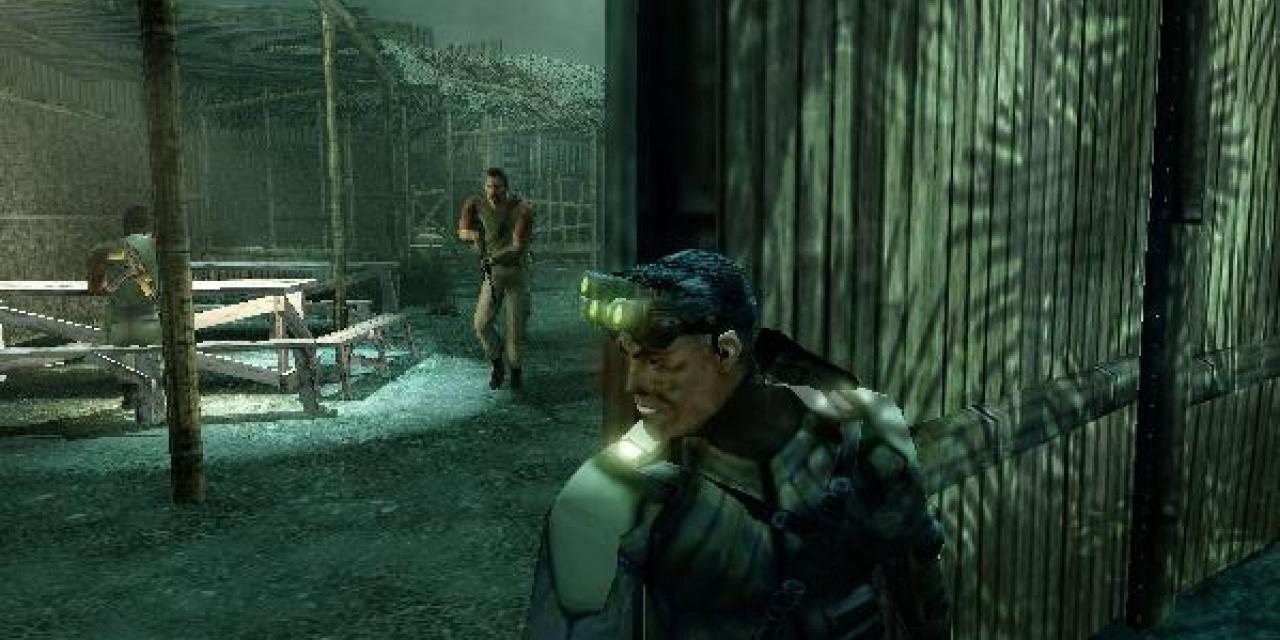
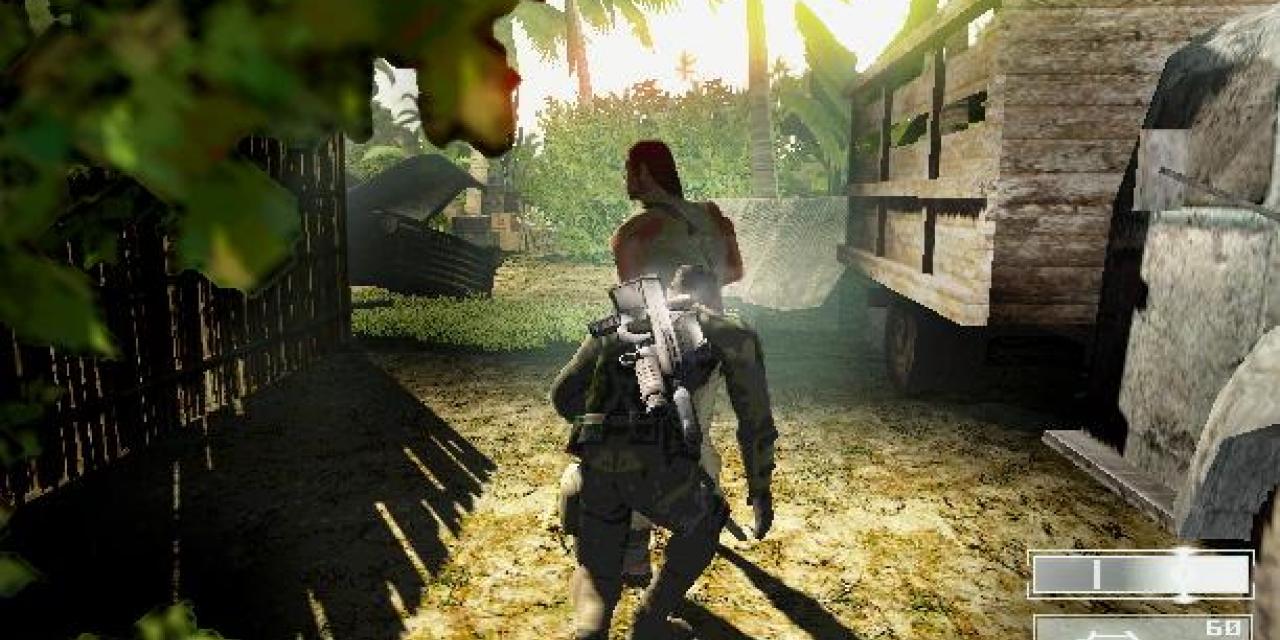
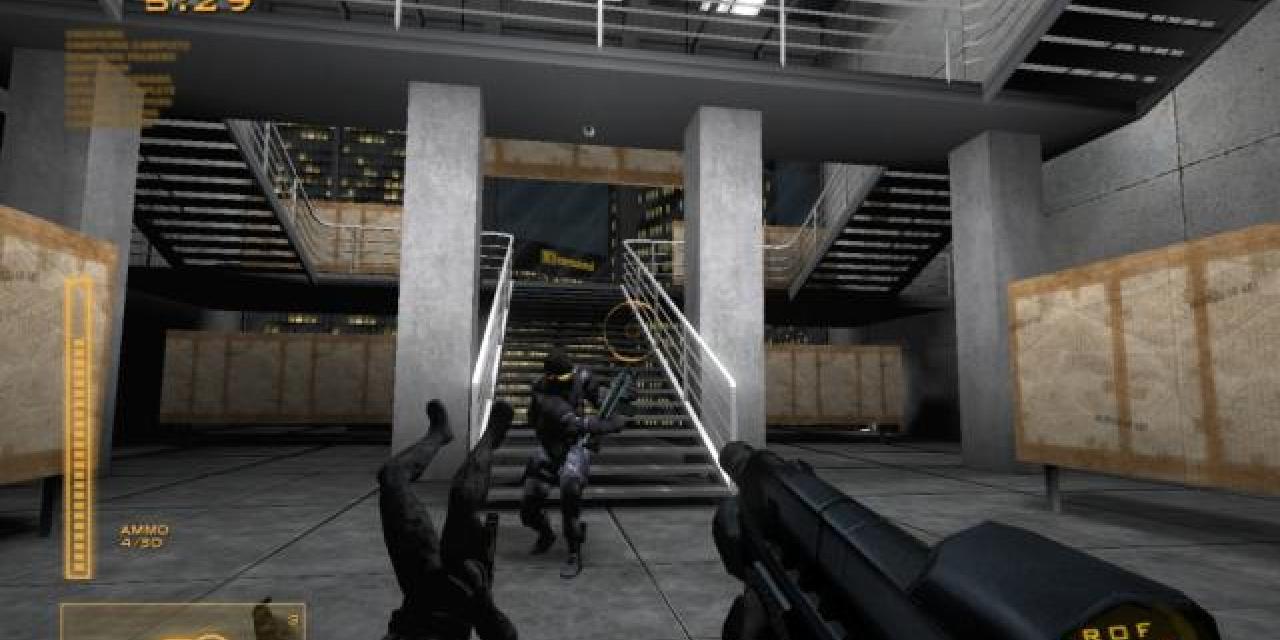
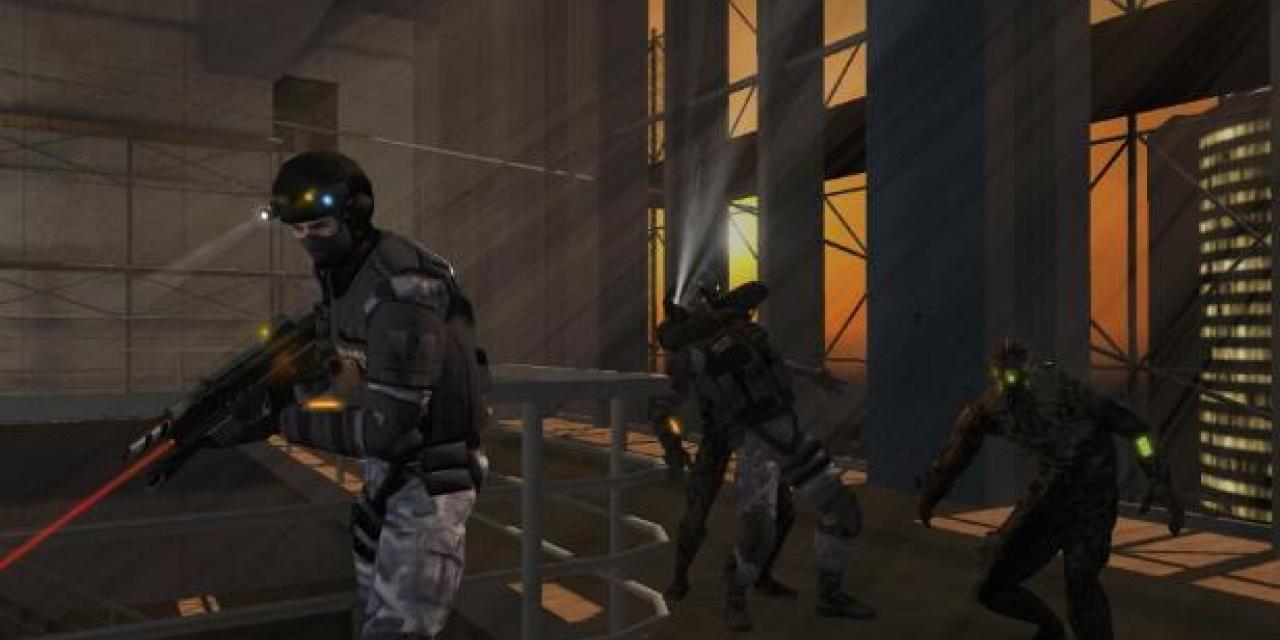
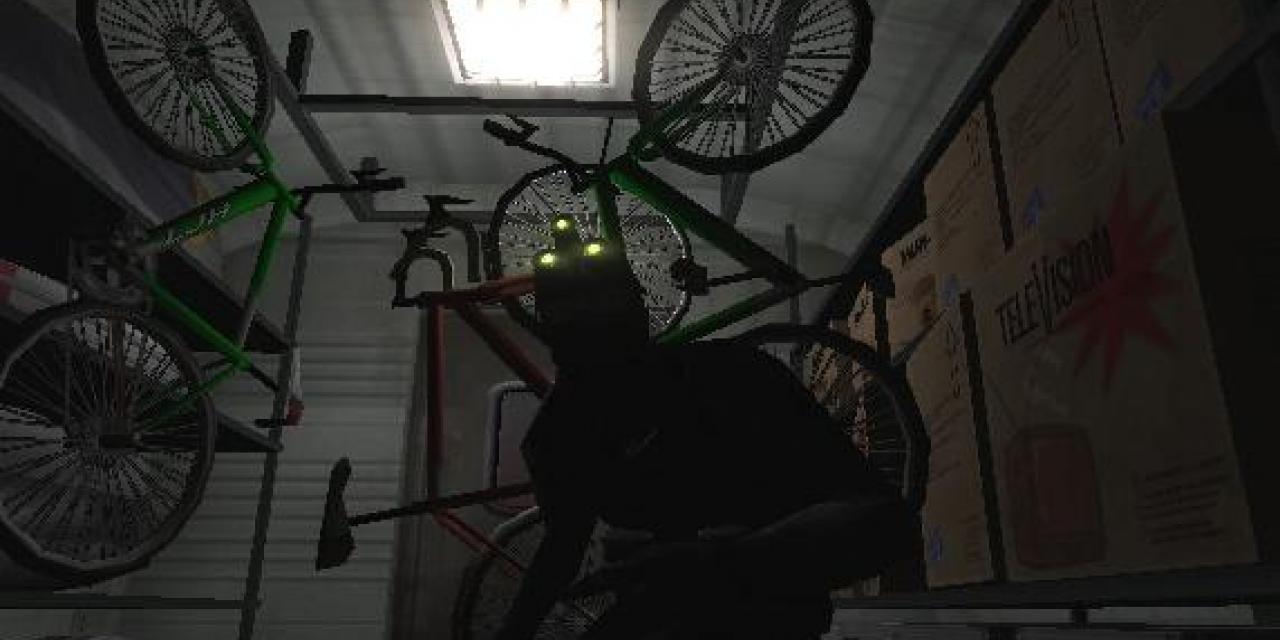
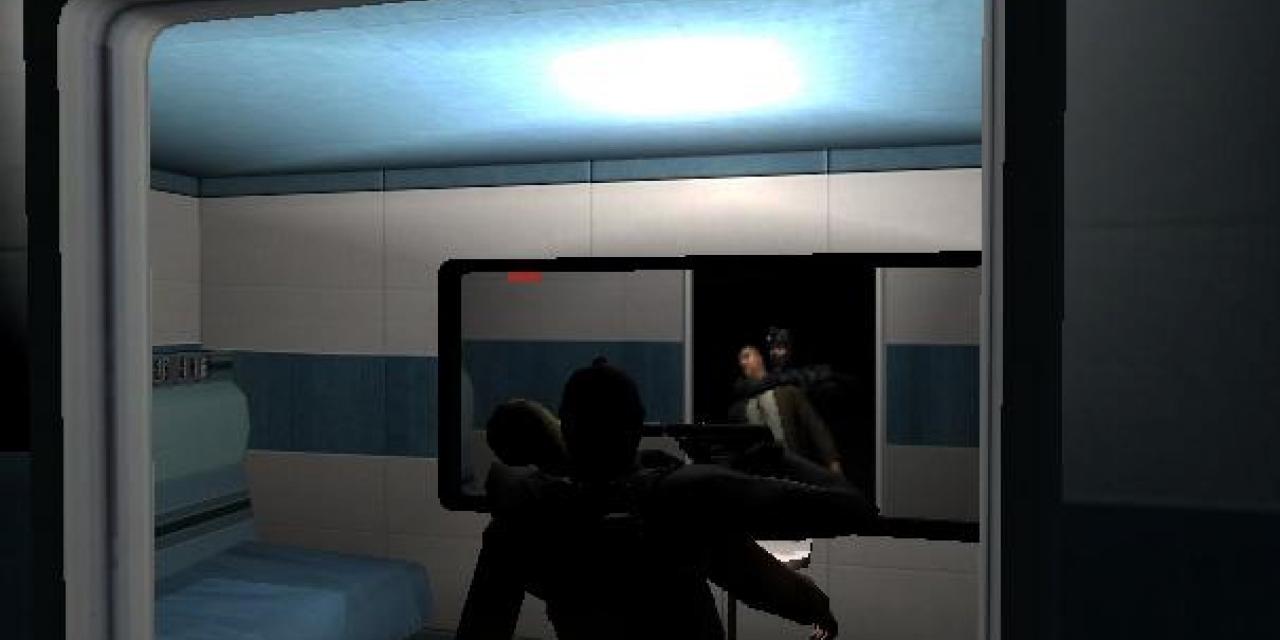
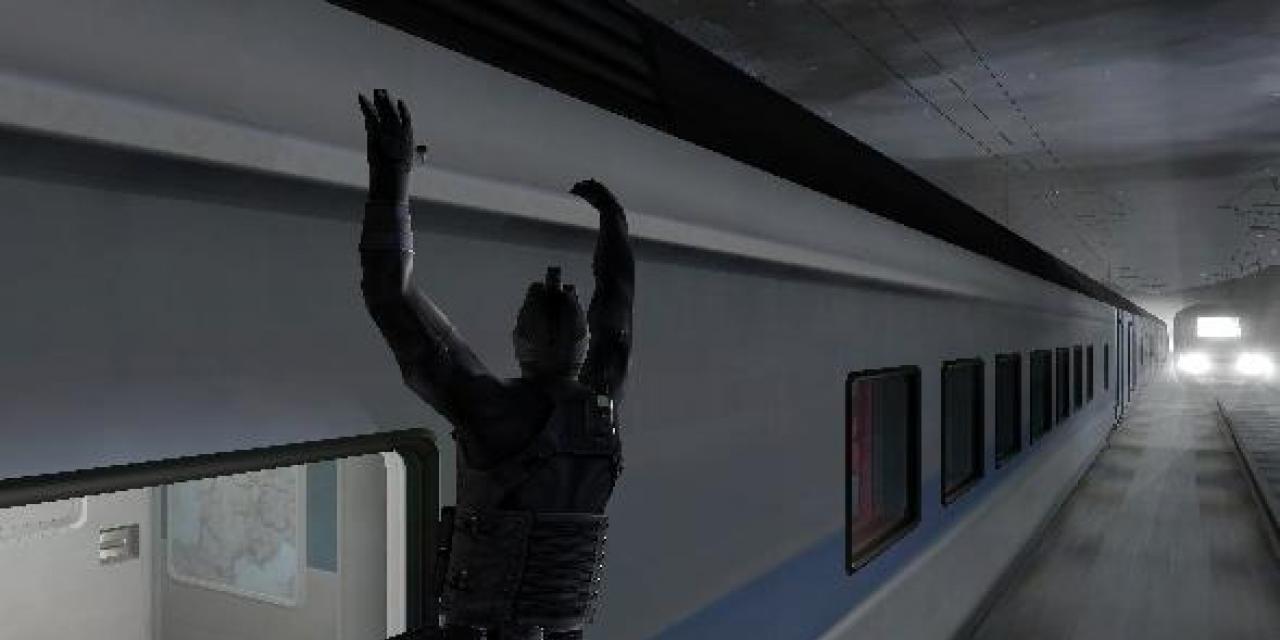
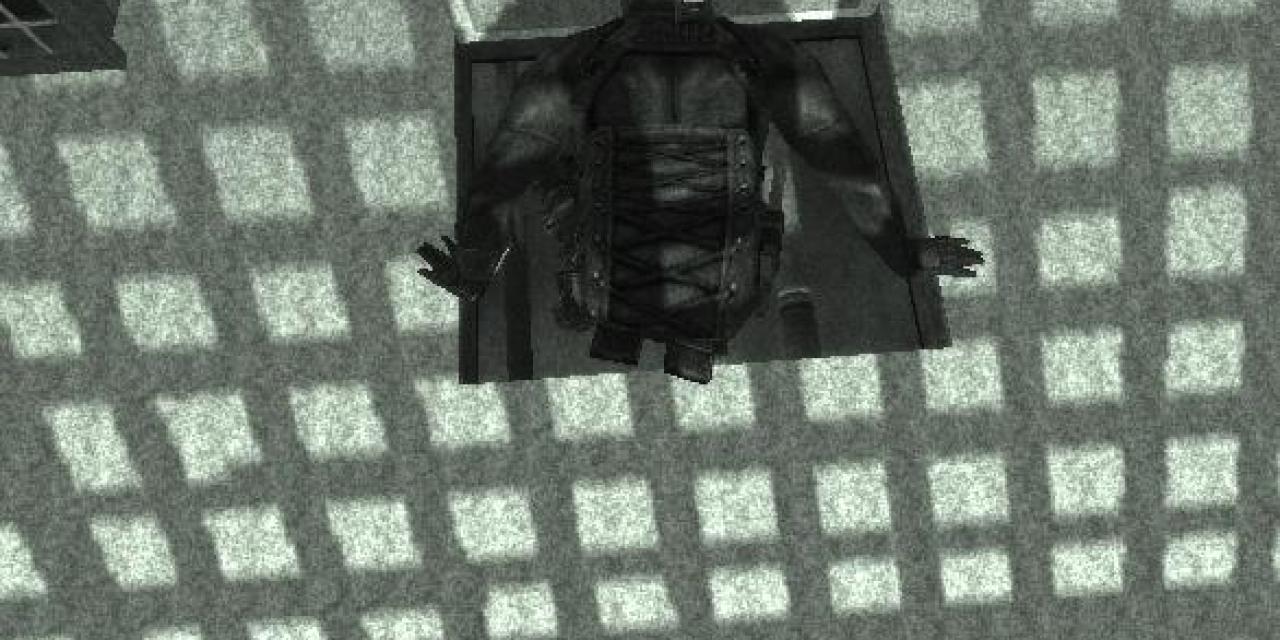

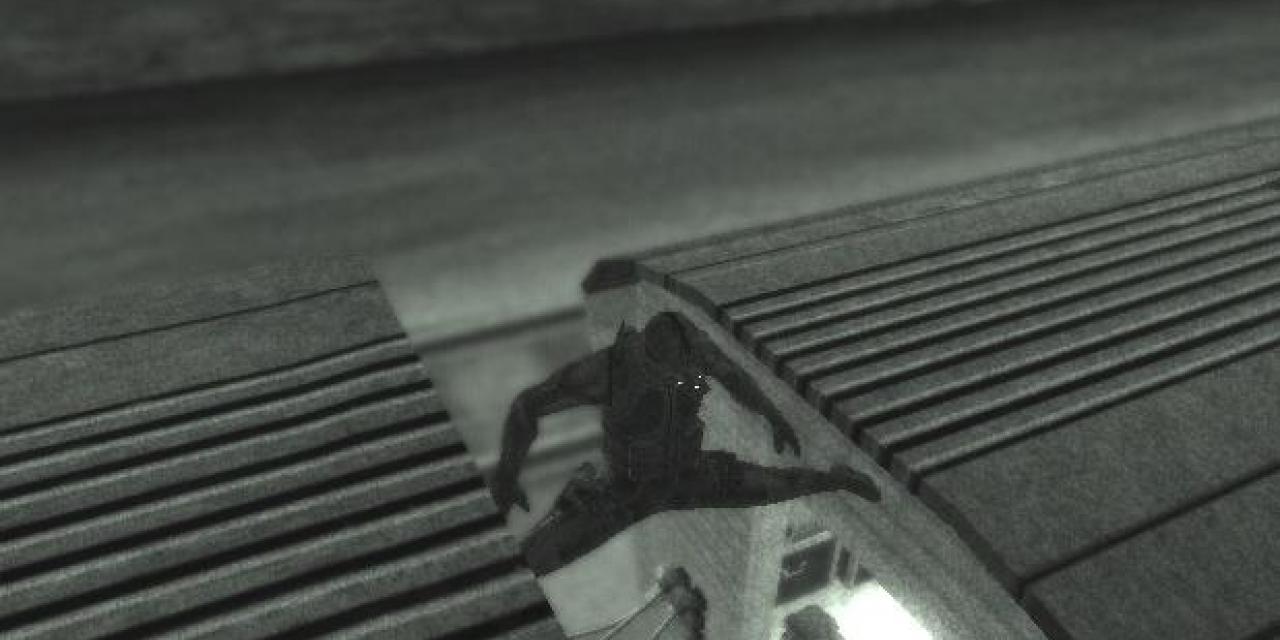
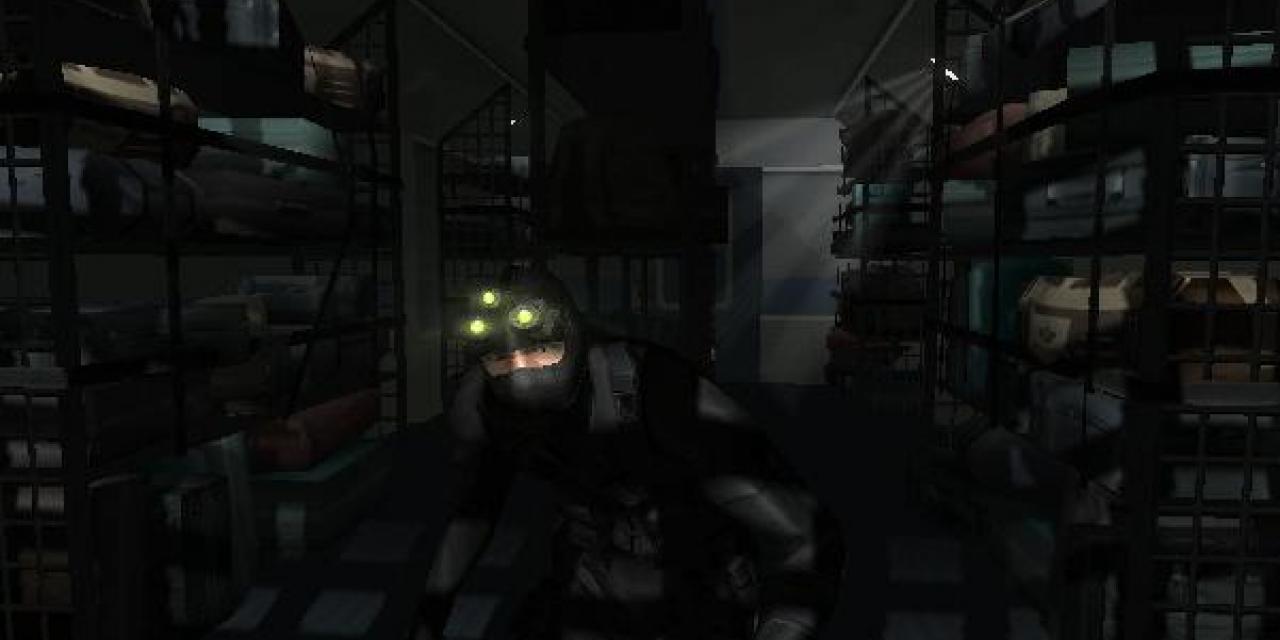
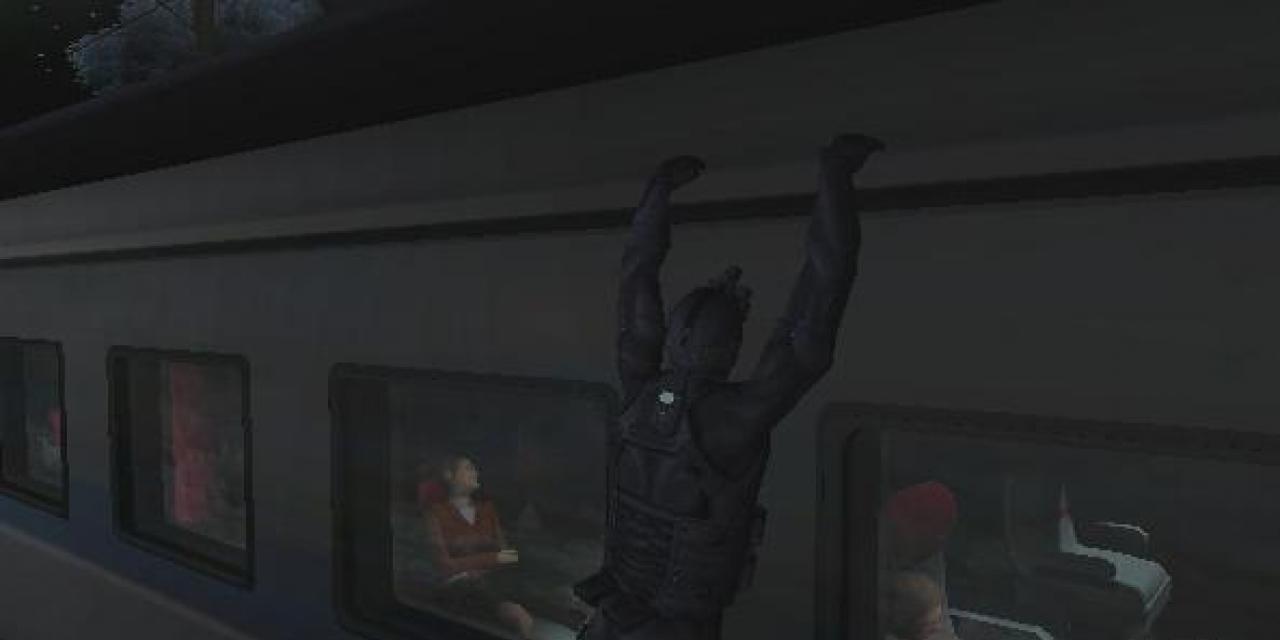
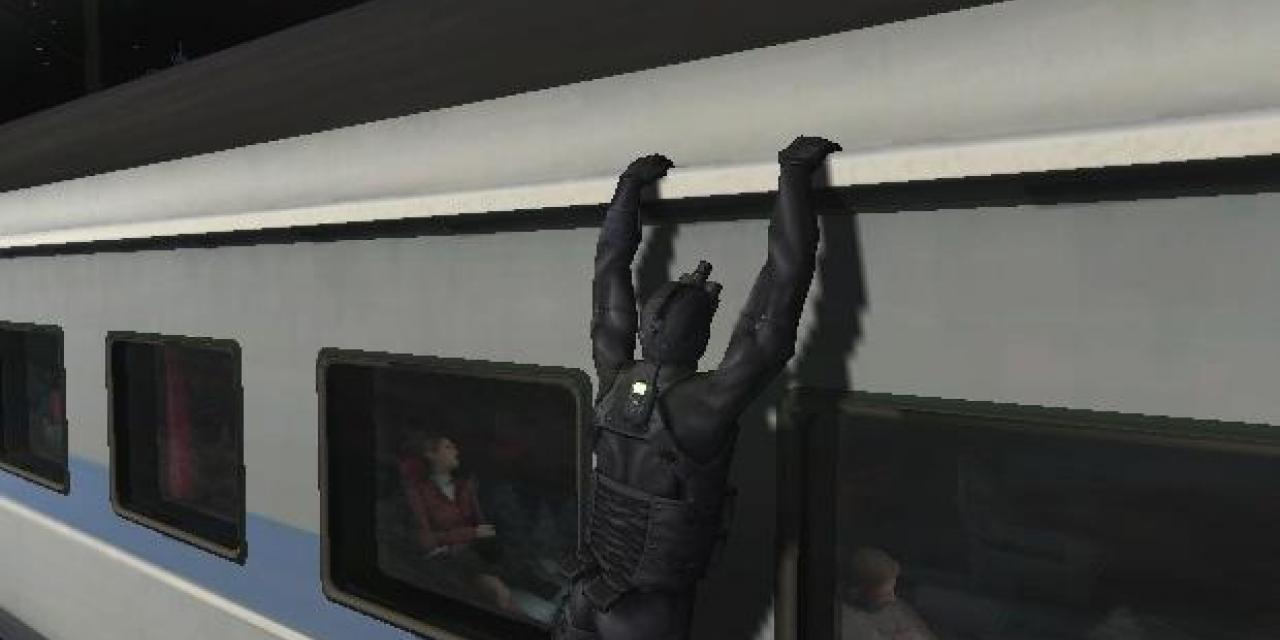
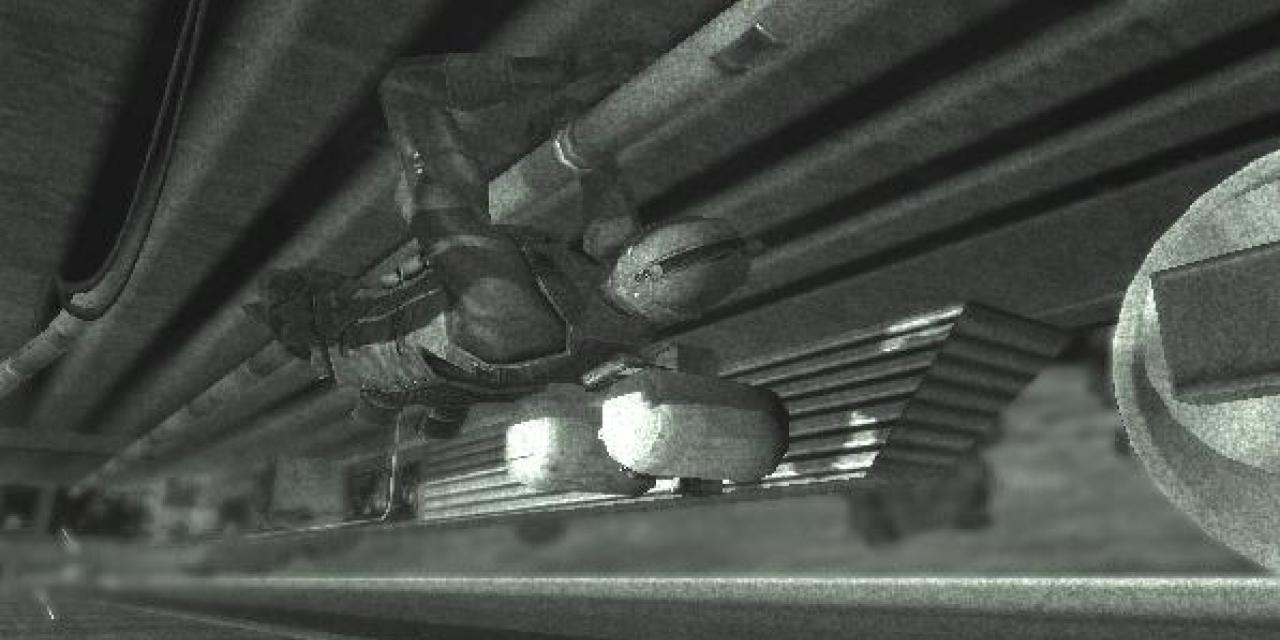
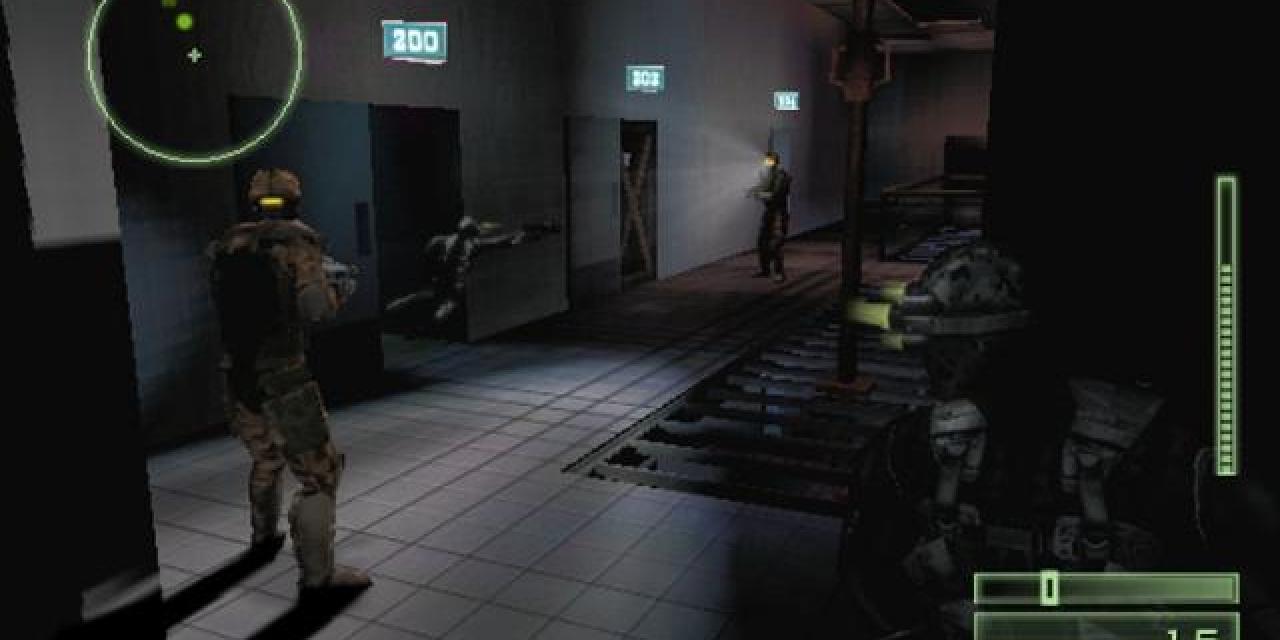
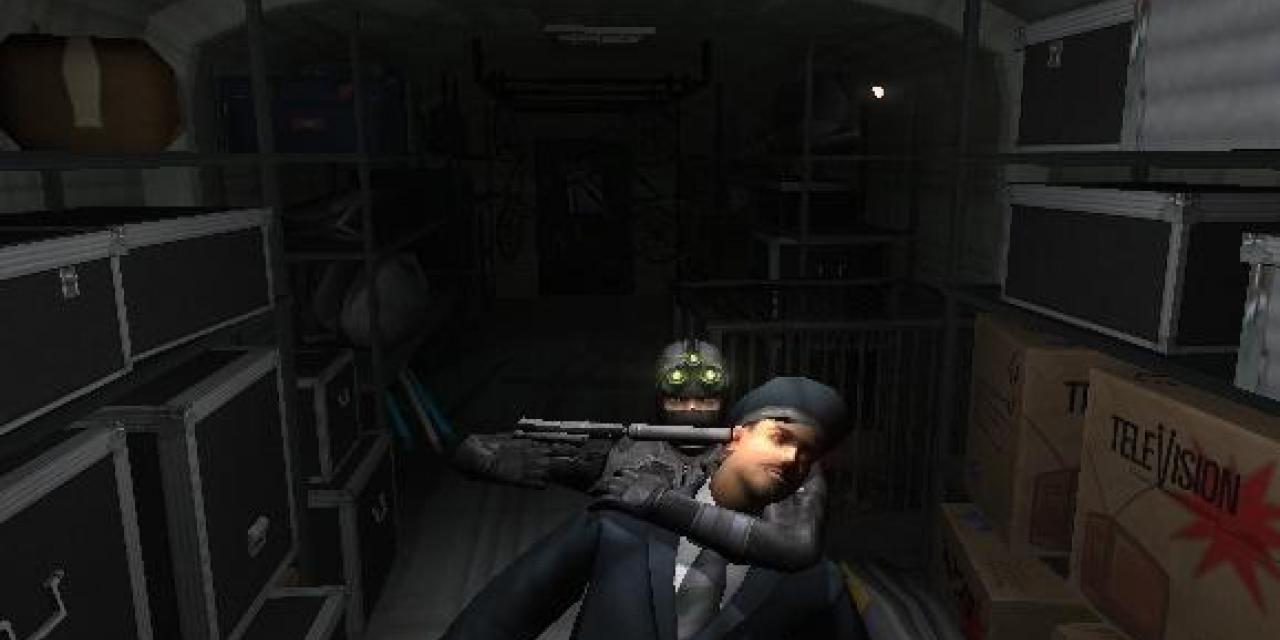
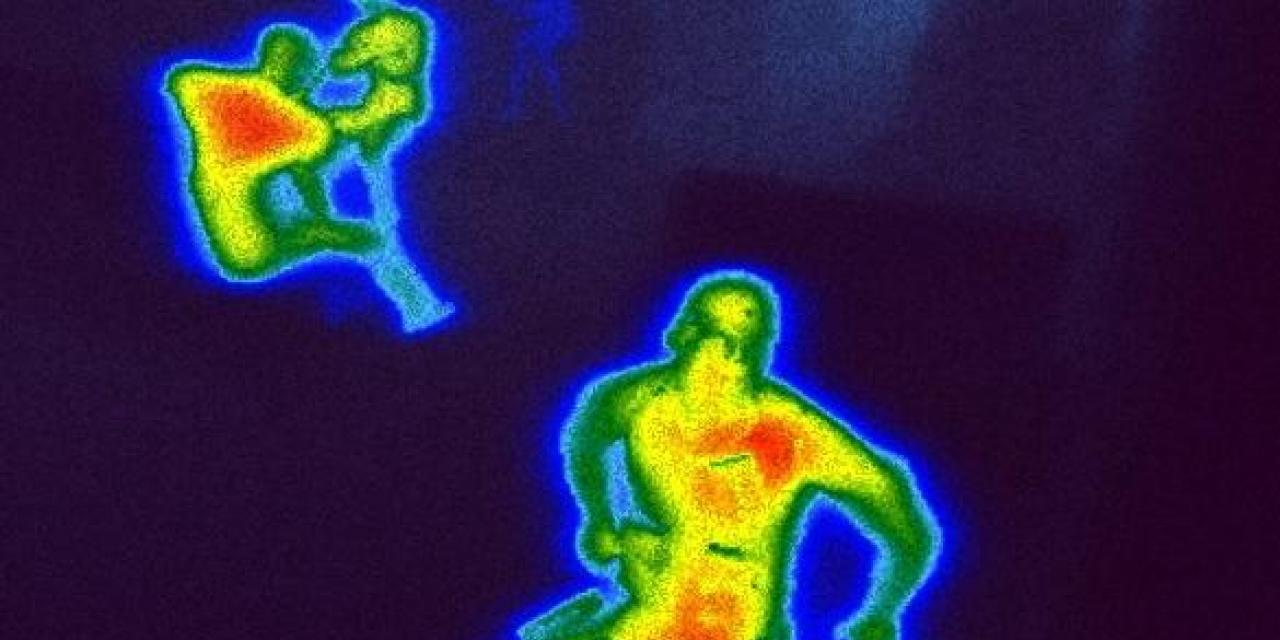
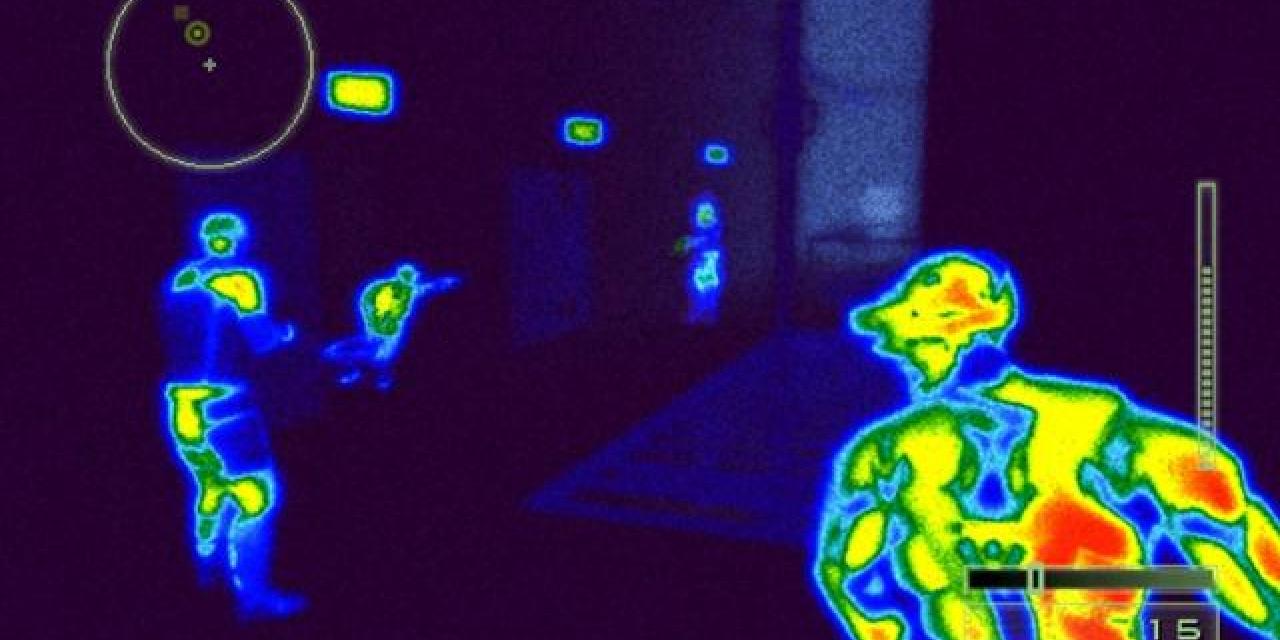
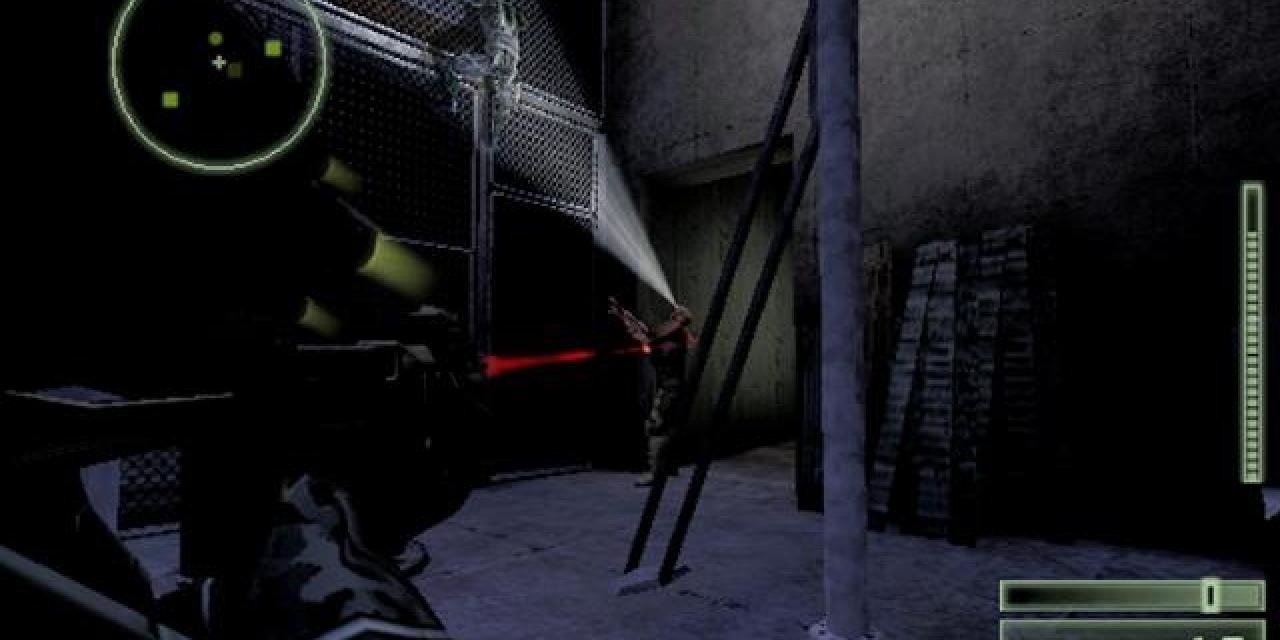
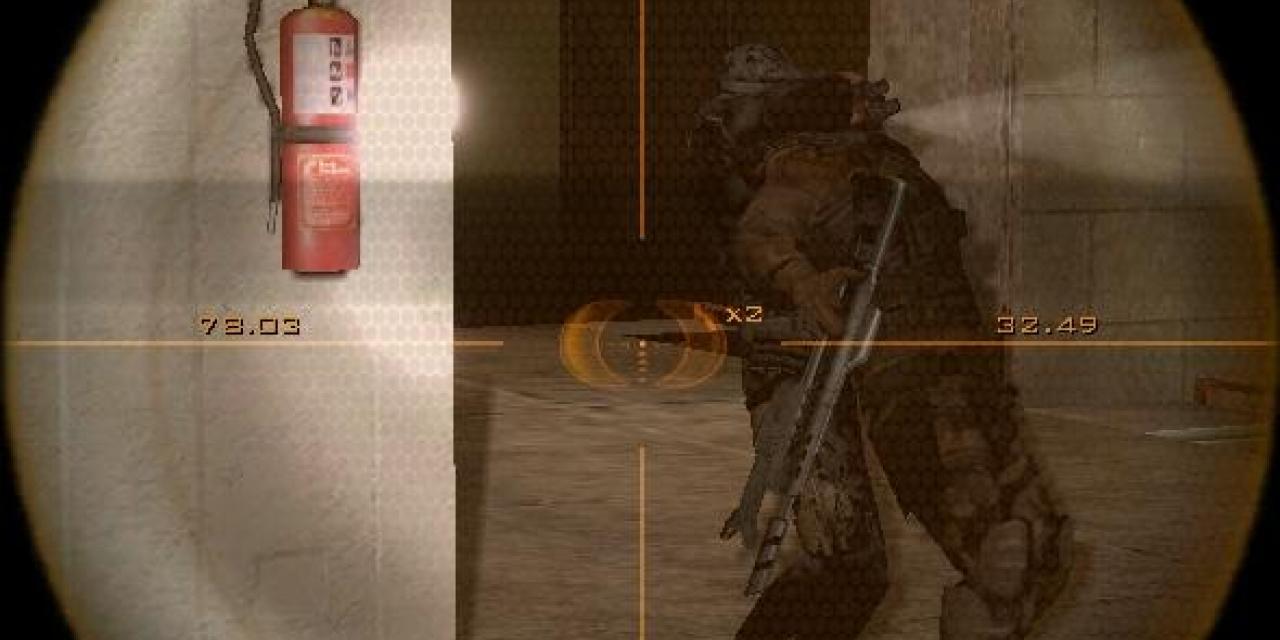
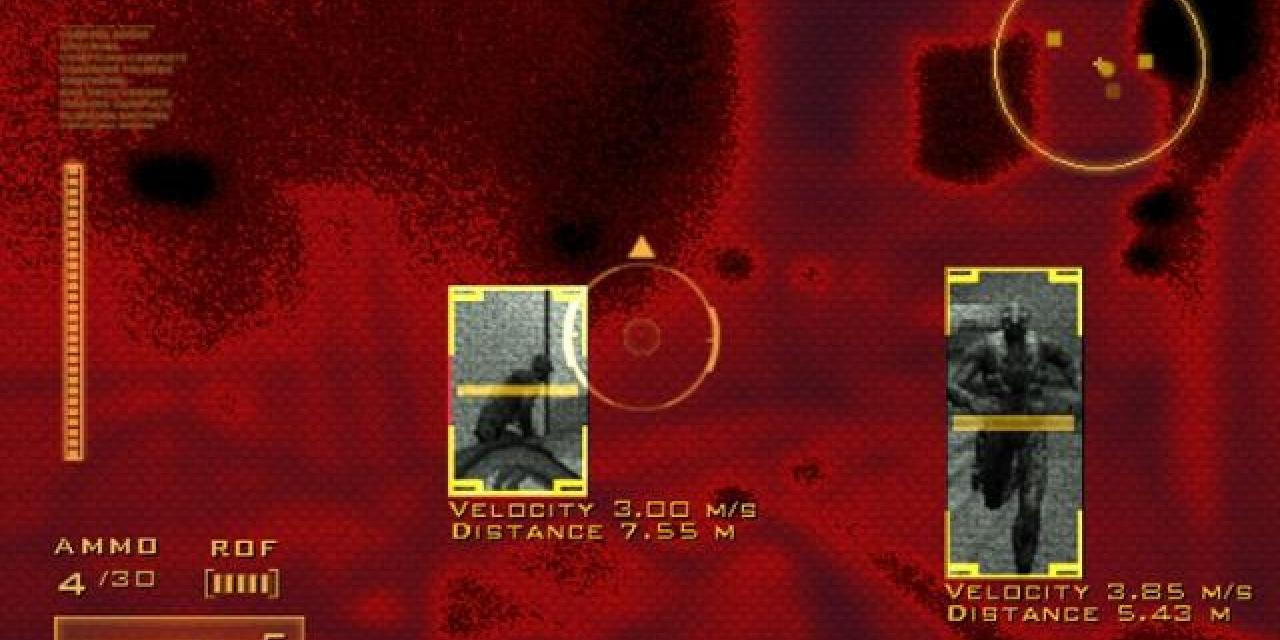
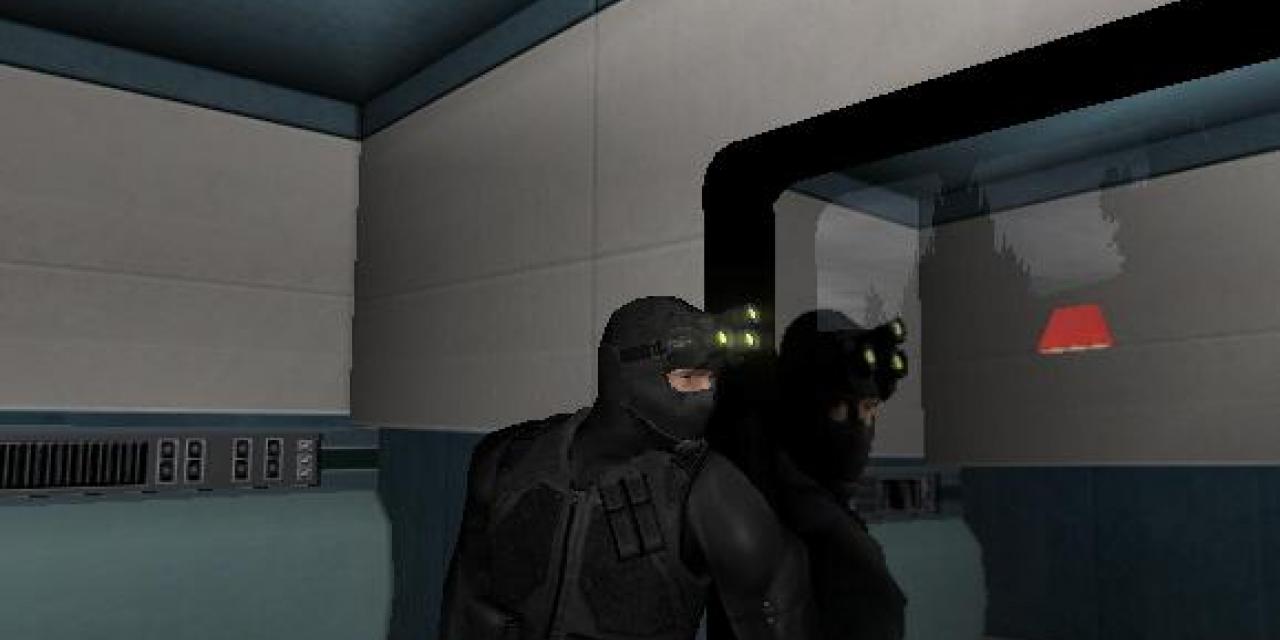
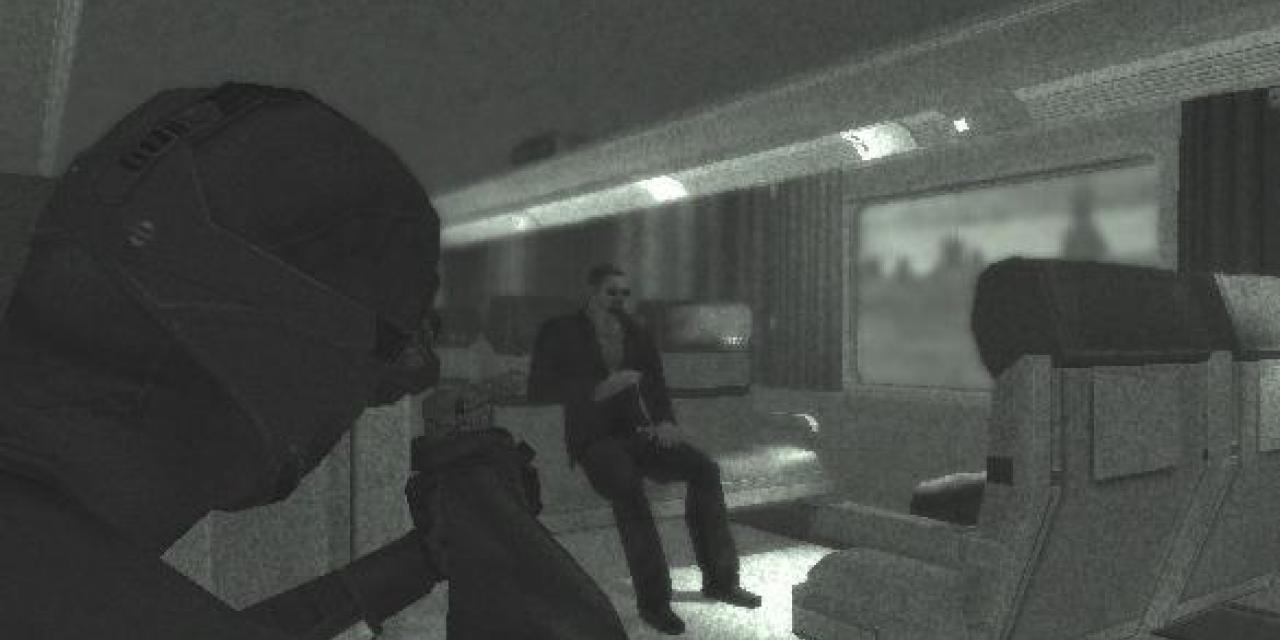
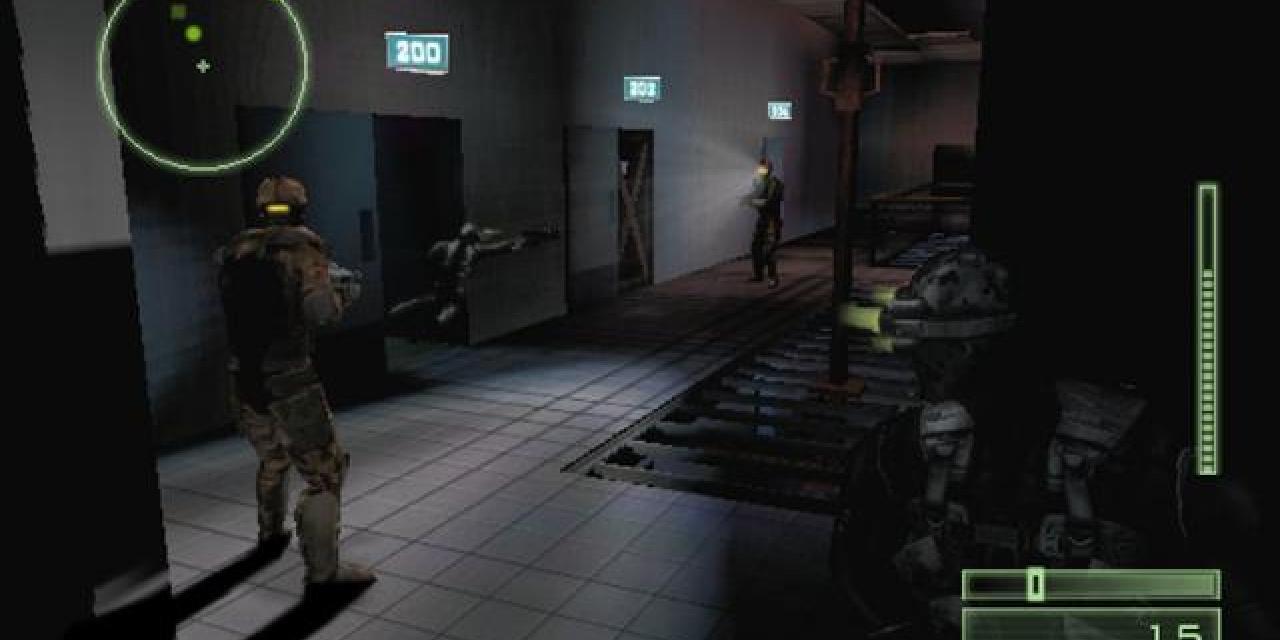
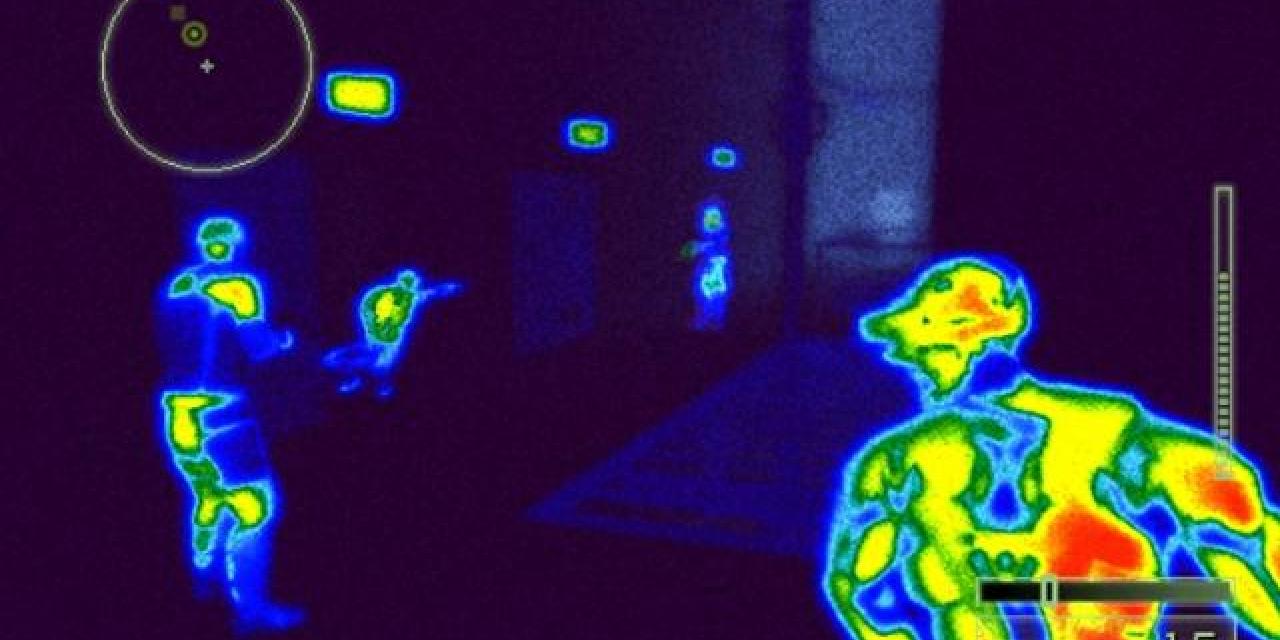
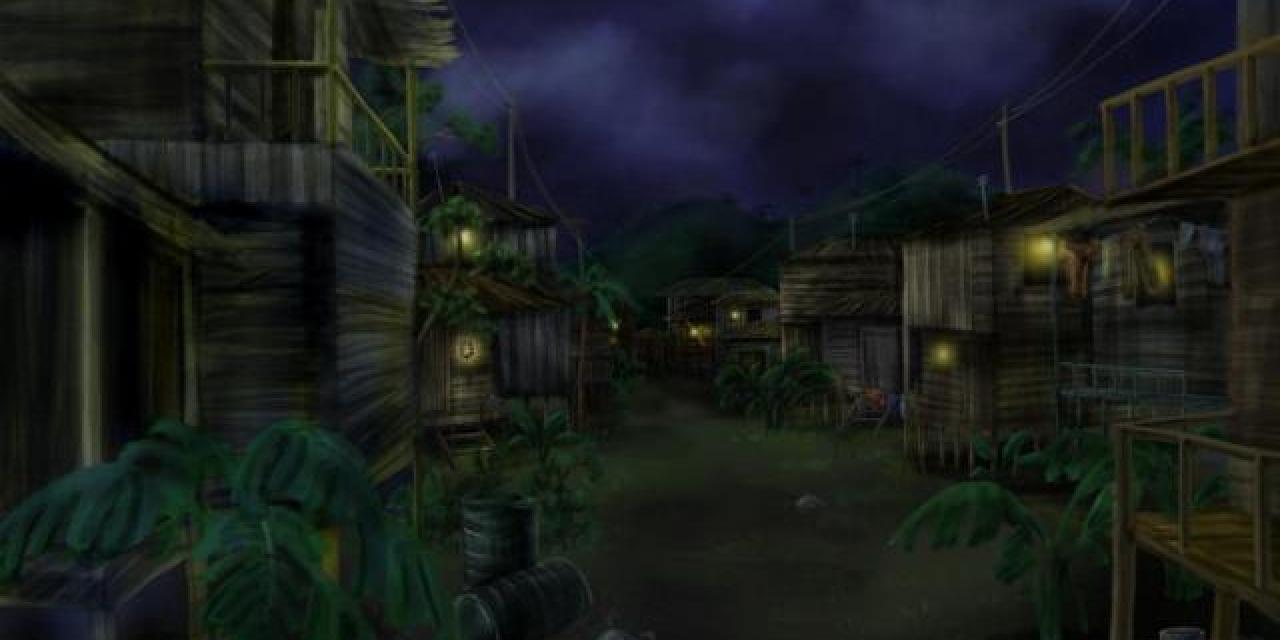
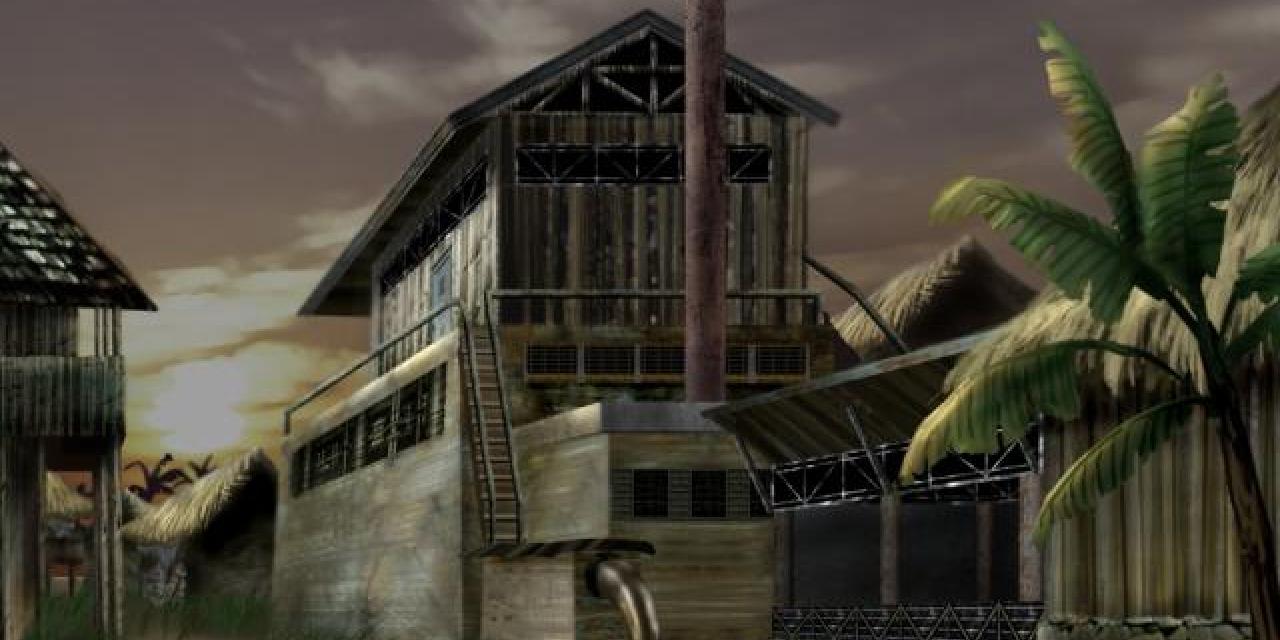
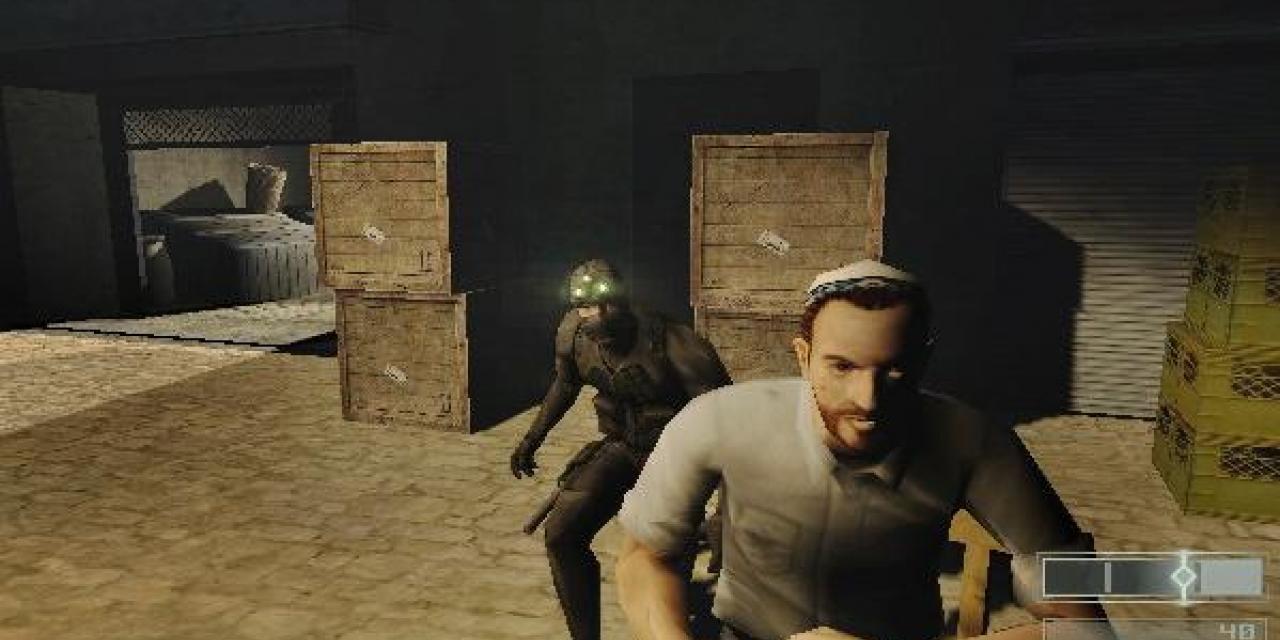
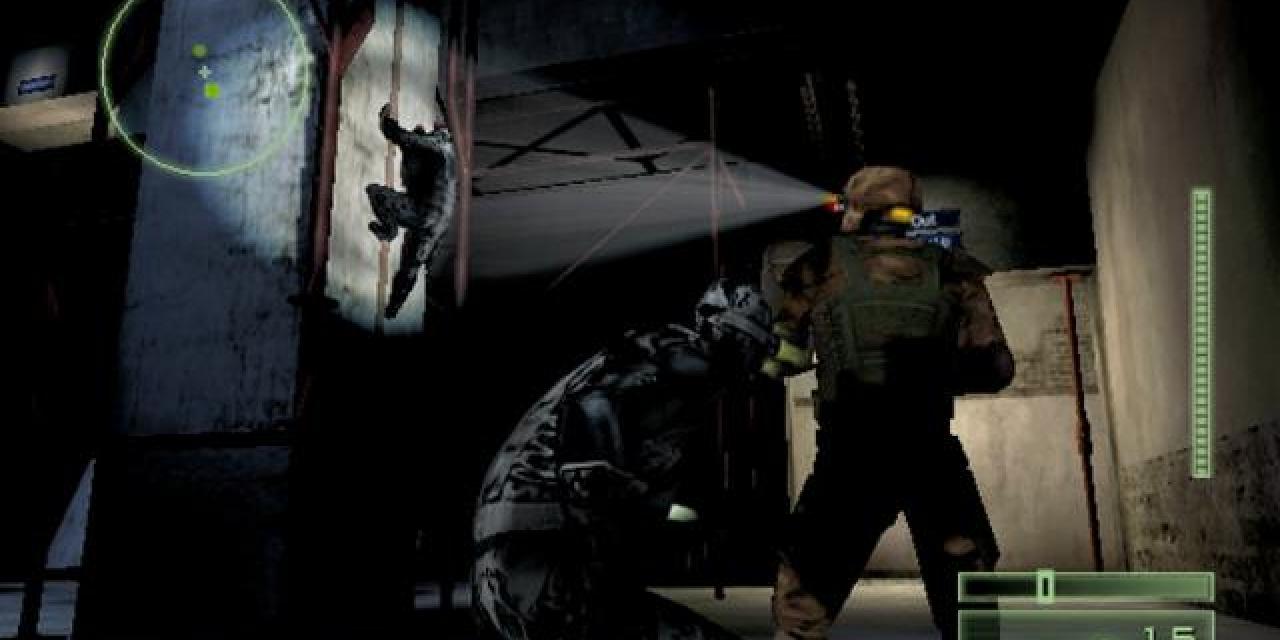
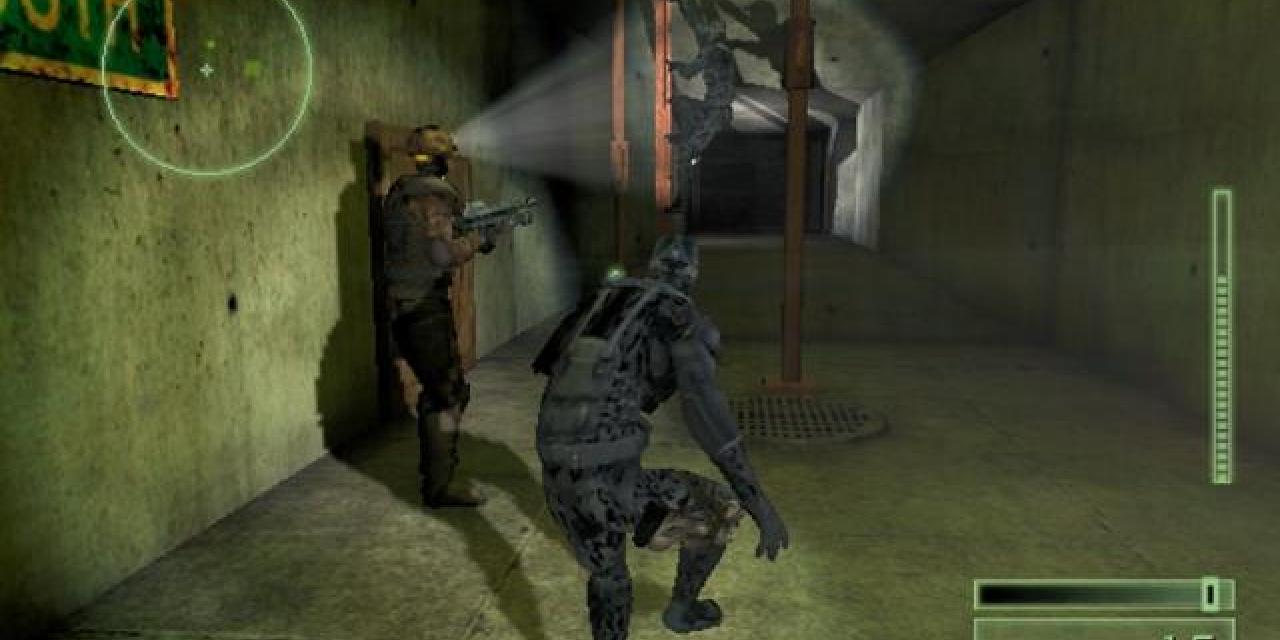
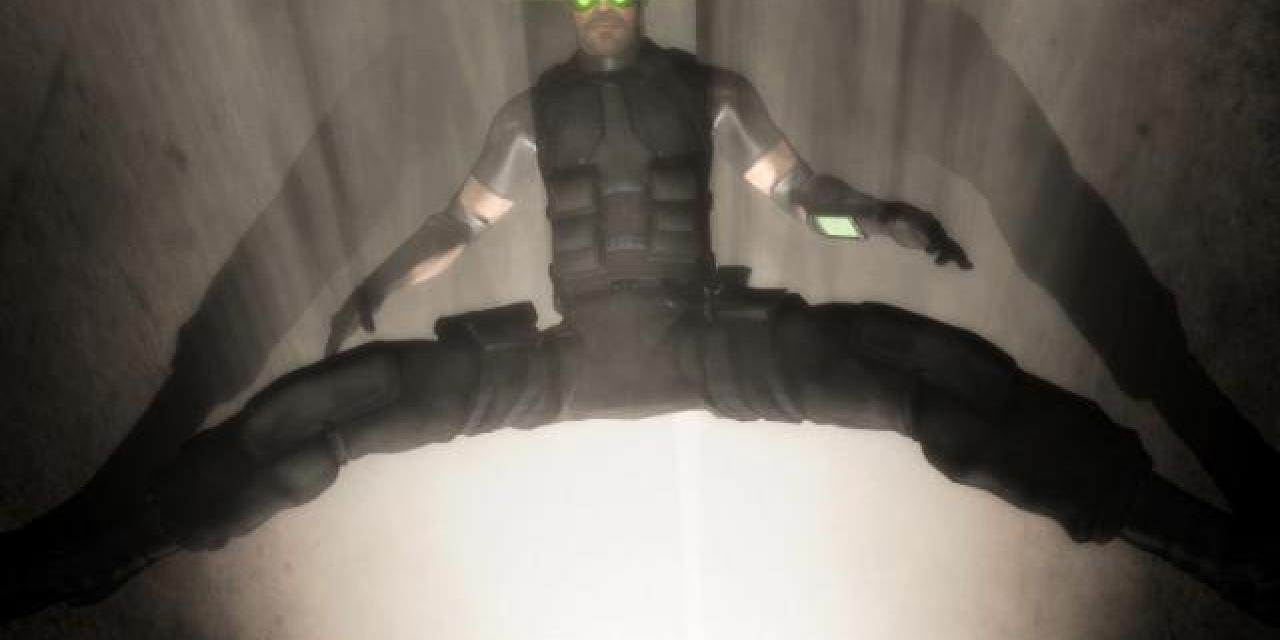
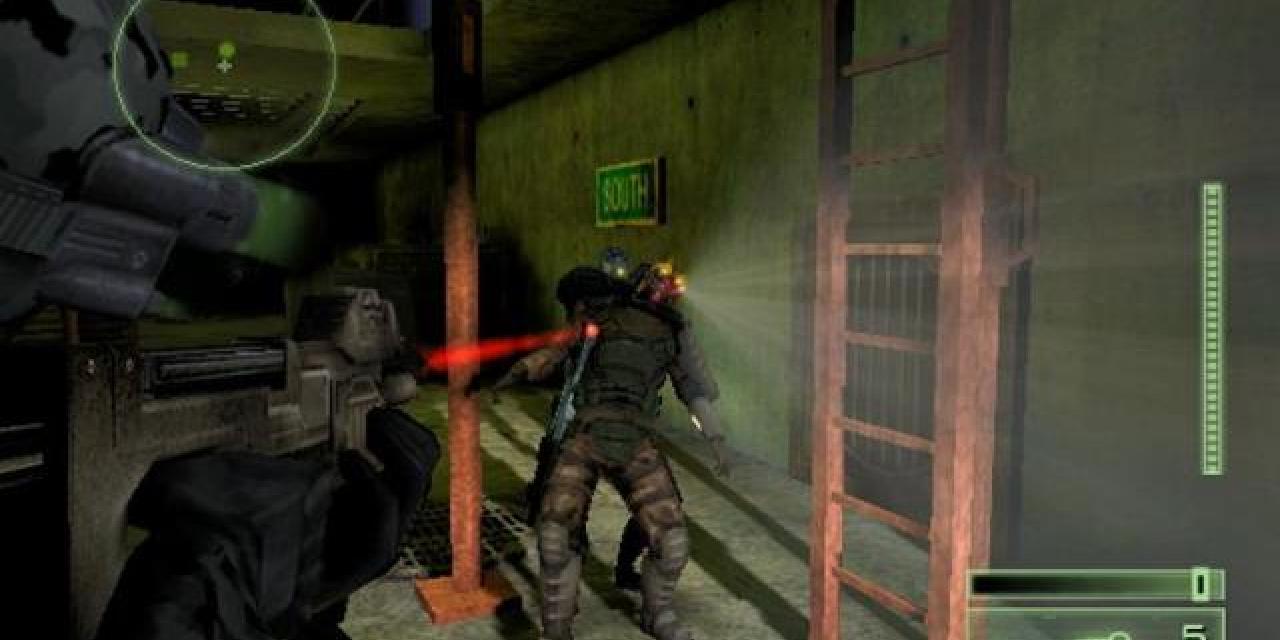
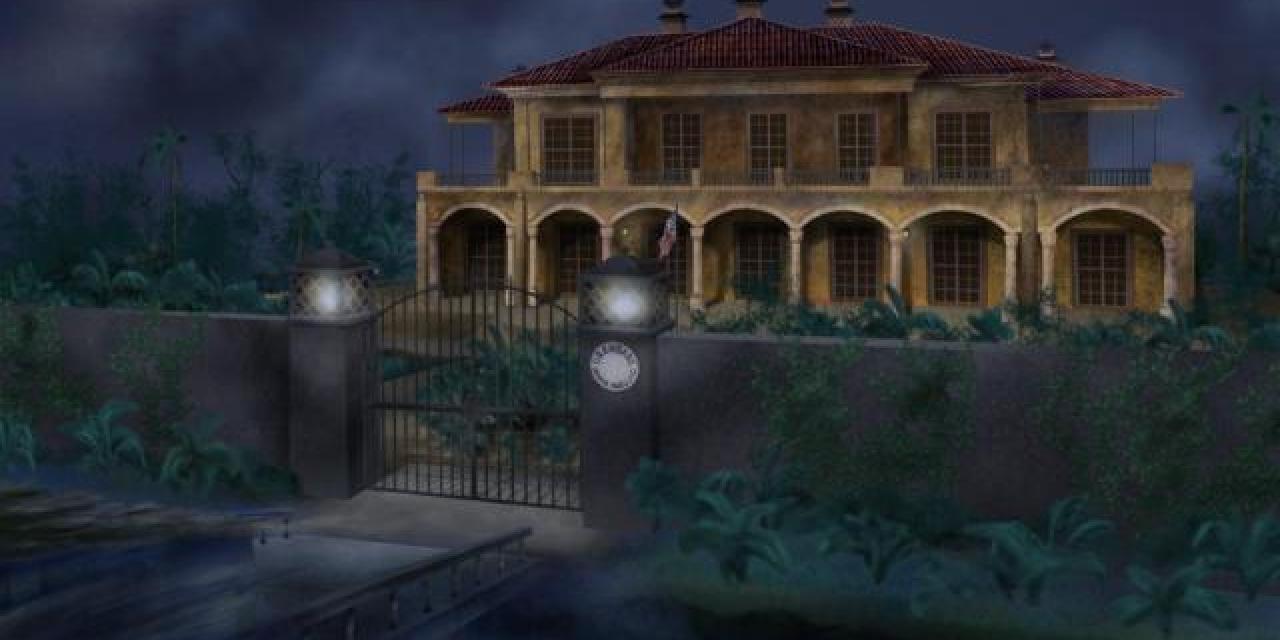
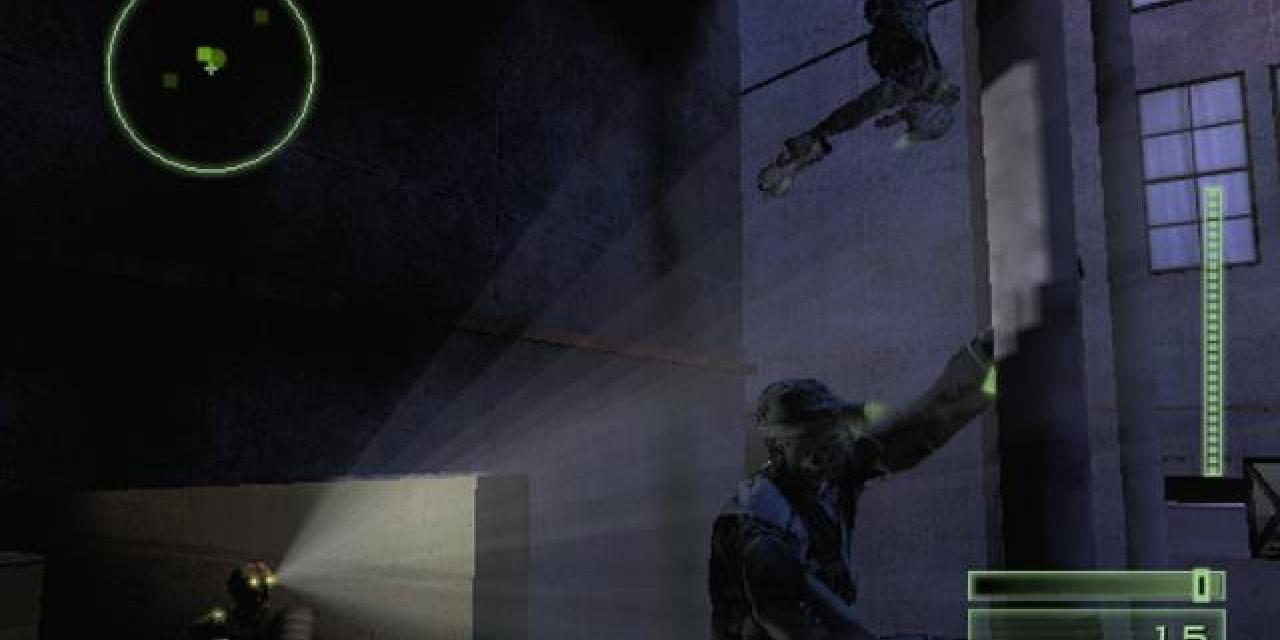
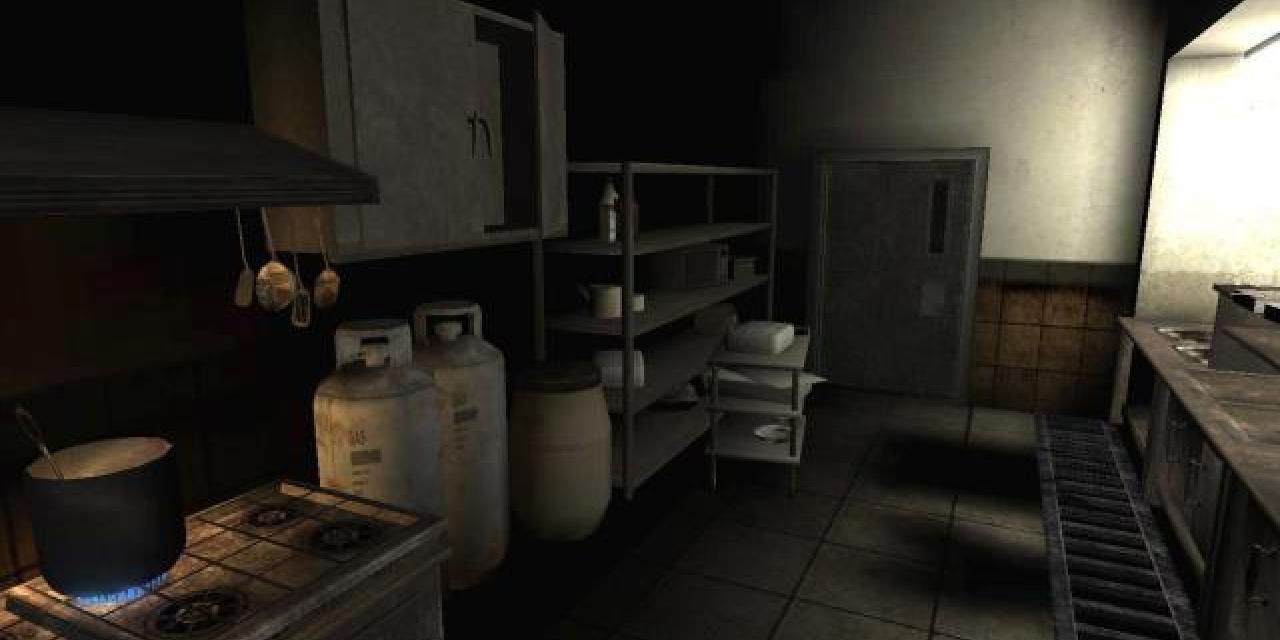
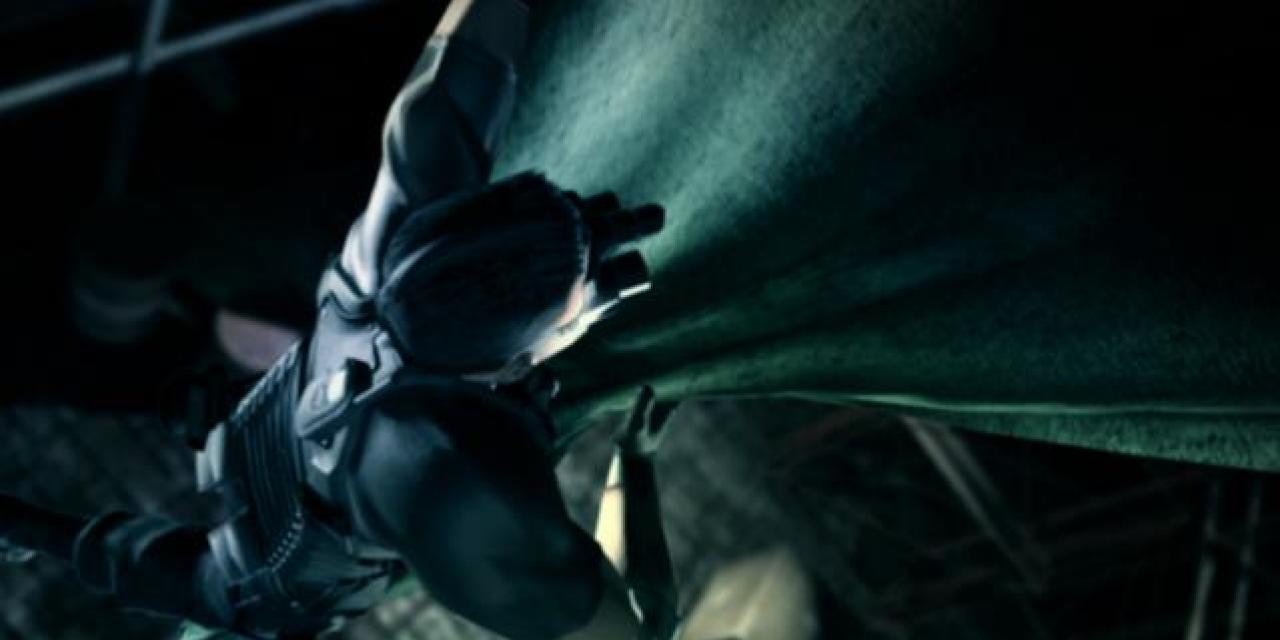
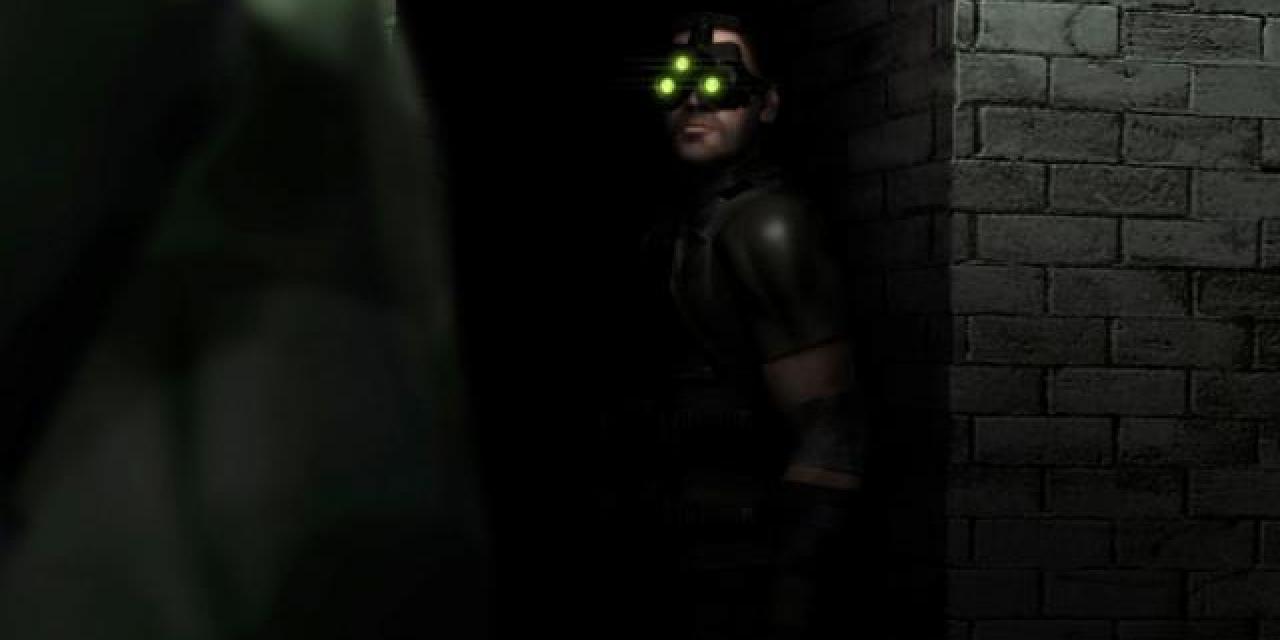
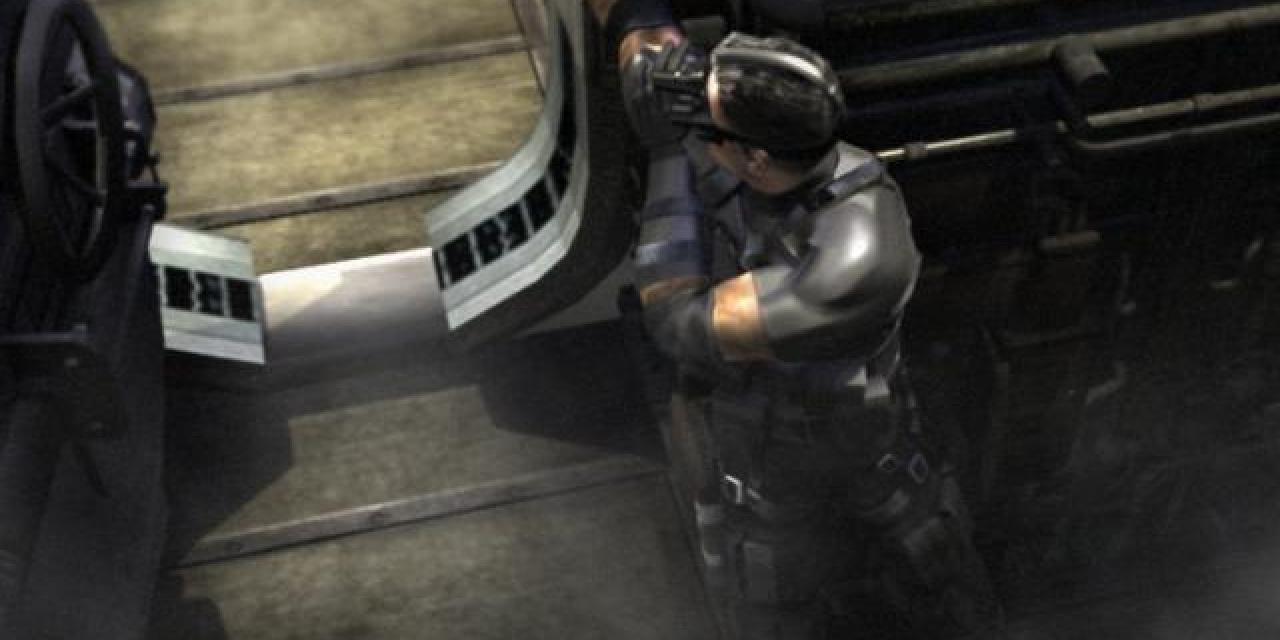
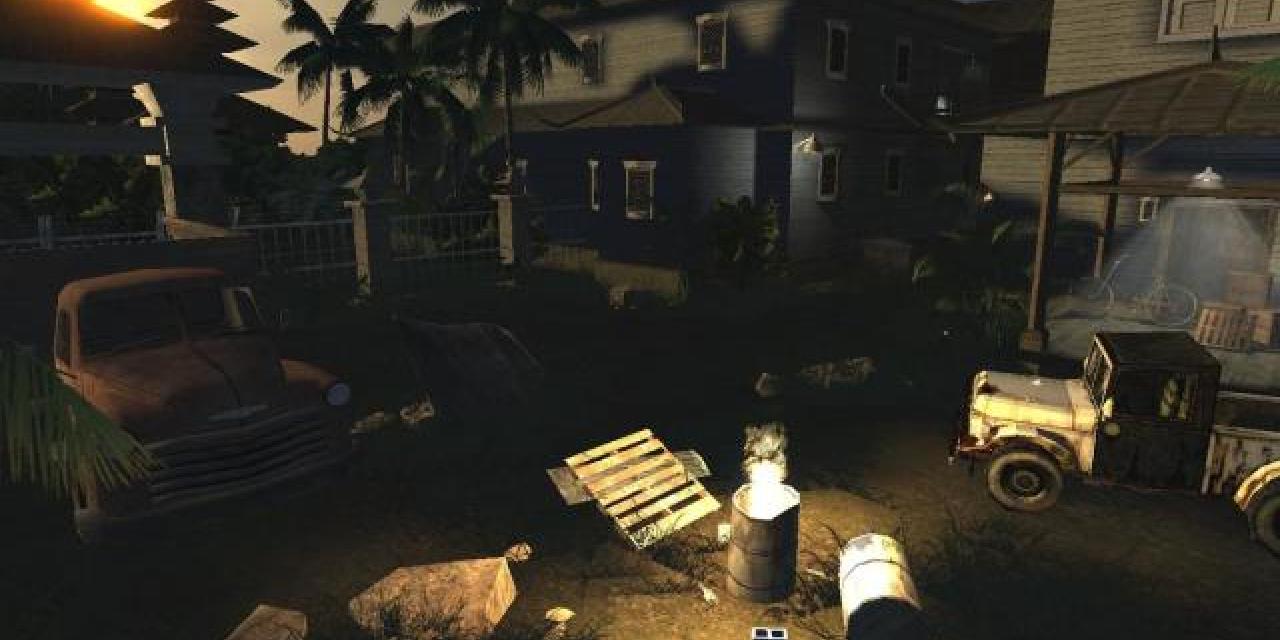
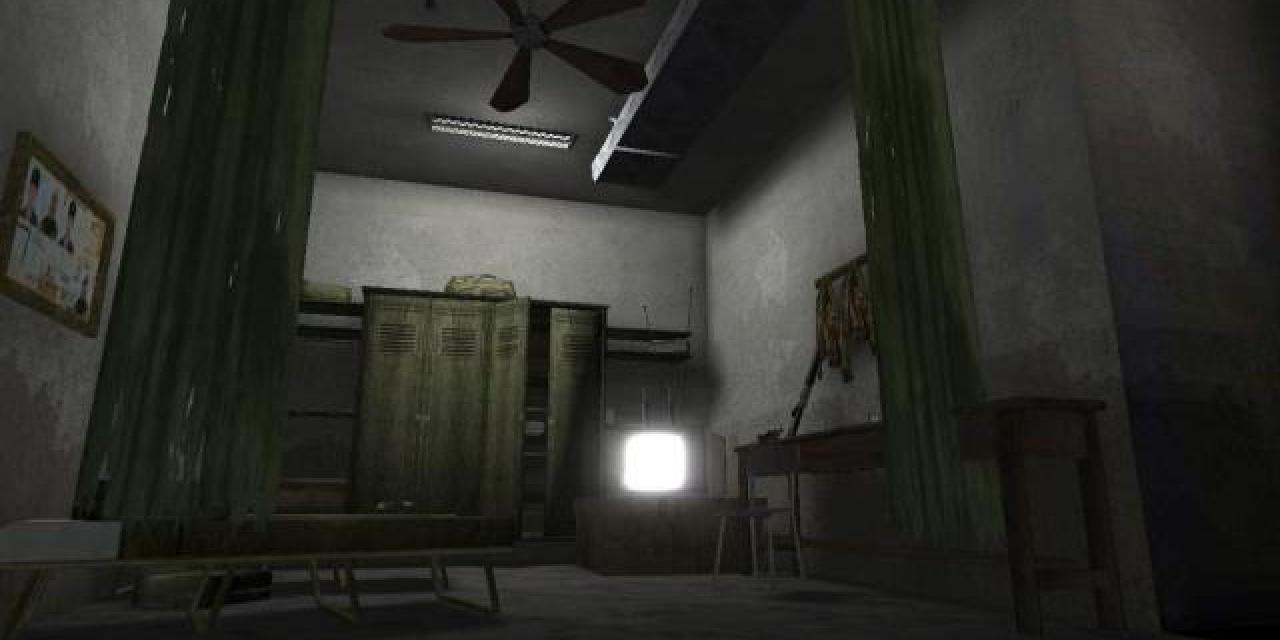
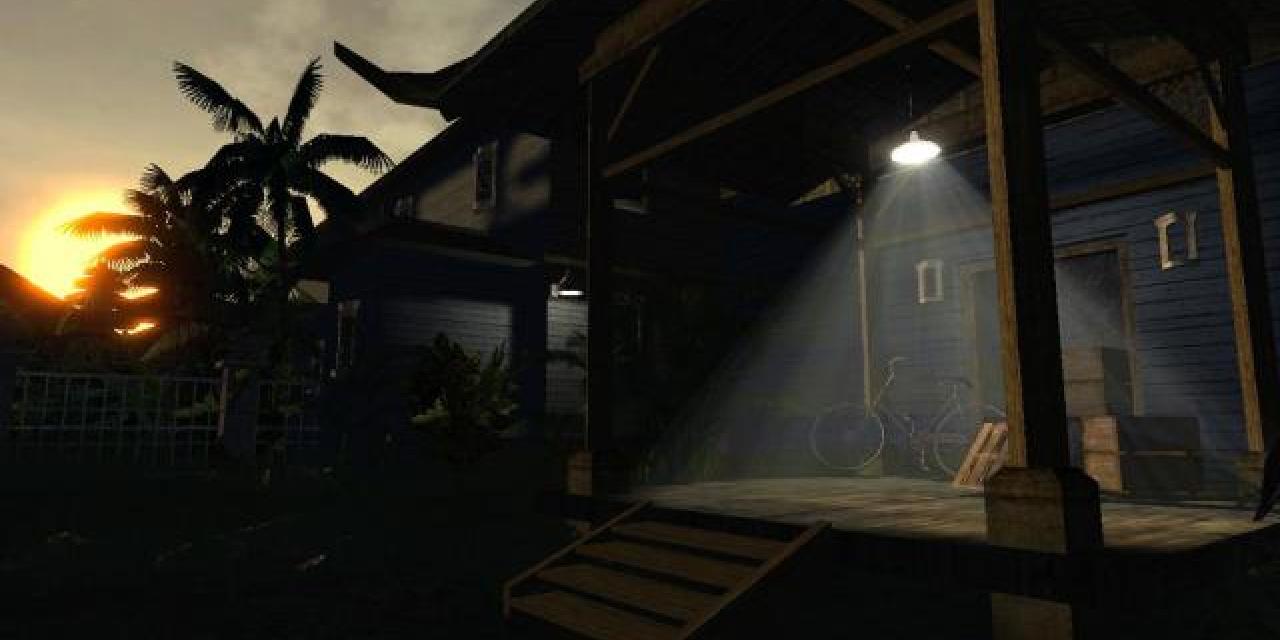
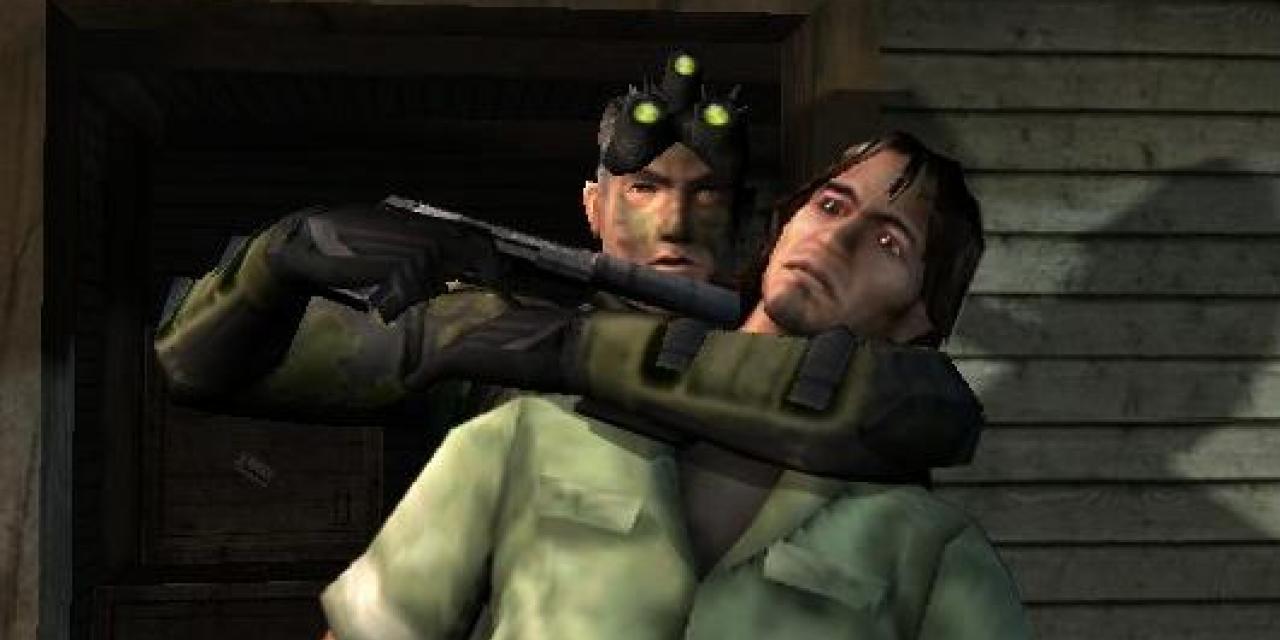
Sam Fisher's first appearance was very much in character, as he slowly crept up behind the unsuspecting gaming industry and delivered a mighty blow. Dismissed by many as a simple Metal Gear Solid clone before its release, Splinter Cell emerged as a winner in the stealth wars, simply on sheer elegance. Overall elegance that is, since the game did have some major flaws.
Anyone who played the original Splinter Cell has first hand experience of the frustration involved, SC was one of the first games you could not play in the presence of underage kids or people of a weak disposition. Upon Sam Fishers arrival, the dorms of Universities all over the world echoed with the wide variety of expletives the game managed to extract out of even the calmest of gamers.
Even though the difficulty in some levels, remember the CIA mission? Made Splinter Cell almost unplayable, the intensity of the plot, the ingenuity of the gameplay and the stunning graphics made sure that players moaned and groaned their way through
it. Having considered all that it seems that Pandora Tomorrow will be a sequel to the original not just by bringing Sam Fisher back into our lives but by also rooting out and addressing all the problems and issues that came up with Splinter Cell. According to Ubisoft they listened to gamers and as a result Pandora Tomorrow will be better.
That, of course, does not mean that the sequel will be a copy of the original minus the mistakes. Instead, Splinter Cell 2 has been built from the ground up allowing for new, improved gameplay while retaining all those things that made the original game such an instant hit.
Pandora Tomorrow will arrive carrying the promise of an improved original but offering so much more. Think of extra gadgets, smarter enemies, improved gameplay, the option of an FPS mode and most importantly, an apparently revolutionary multiplayer and online option. Armed with his impressive arsenal of tools and hi-tech gadgets, Sam Fisher returns taking on everyone that stands between him and his mission. Silence is golden and Pandora Tomorrow aims to prove it when it is simultaneously released on XBox, PS 2 and PC this spring. Impressed? Read on to find out why the Splinter Cell sequel has become one of the most anticipated games of the year.
Where the original Splinter Cell shone and most probably, where it's biggest flaws lie, was in gameplay. Addictive action with the right blend of adrenaline surges and tense stealthy moments, meant that SC immersed the player into a world of espionage and attempted to help gamers cross the line from classic all-guns-a-blazing action to a more strategic approach, proving that it could be just as intense. At the same time the level of difficulty involved in the game alienated some players who could not invest the necessary time in order to master the stealthy arts.
Although built from the ground up, Pandora Tomorrow cannot deny its heritage and therefore maintains the same ingredients which will guarantee that those who liked the first will love the sequel. On the other hand, the improvements mentioned earlier, have been brought-in, in order to increase the game's appeal and attract the gamers who had been disappointed by the difficulty involved.
Storyline
An issue which plagued the original game had to do with the incredibly complex storyline which left most gamers too confused to completely become Sam Fisher. Pandora Tomorrow will include an equally intense storyline but this time round developers have approached it in a minimalist mood. Less is more means that there will be fewer characters involved but they will be examined in detail and interesting background information will come up. Expect lots of juicy details on Sam's past while some mystery figures from the first game, Colonel Lambert for example, will also be further examined. Since the SC series will see a lot of sequel action it is also likely that some of the people surrounding Sam will appear in future installments of the game.
Linear?
Another complaint from the original which kept surfacing in fan sites, forums and reviews of the original game has also been addressed. Many who played Splinter Cell found the progress too restricting and most decided to let the developers know. Ubisoft have been careful not to react to those complaints instinctively by relinquishing all control of the way a player moves through the game. Instead they have made the game's linearity a little less obvious, creating a free-formish experience.
One example used a lot to demonstrate that shift in gameplay is that of the train level where Sam can move through the inside of the carriage, in the old-fashioned way, or under them in a Cape Fear kind of way or hanging on the side of them in a new way. The last method is also helpful in describing a new dynamic affecting gameplay in Pandora. The role of civilians in the game has been upgraded, being spotted by one will carry consequences. In the train level if Sam hangs over a window of the carriage for too long or when the light is on him, the passengers will spot him and the ensuing noise they create will alert guards and enemies. This element of gameplay will add another level of strategic thinking to the game, the effects of that cannot yet be ascertained but definitely help increase game anticipation.
Too Noisy?
The original Splinter Cell introduced a three-level alarm system which when triggered made the game harder until, on the third level, the mission came to an abrupt end. Except for the fact that saving your progress became an art in itself, the system also didn't make real world sense and made the game, on some levels, extremely difficult. That, you will be glad to know, has been scrapped. Instead of a three-level alarm, players will have to move through the Pandora Tomorrow world careful of its guardians.
If Sam is careless, leaving a body somewhere obvious or stepping on anything but foam, guards will become more jumpy. If he keeps it up they will wear flak jackets and if he insists on leaving his mark everywhere they will rush for their helmets and proceed with even more thorough searches. On paper this is an exciting change since the game will become more realistic while at the same time easier to get to grips with, without becoming too simple.
It's tricky to define Sam Fisher's gadgets, tools and various tech-devices as extras since they play such an important part in the development of the game. They are the means by which Sam retains the edge over his foes and manages to remain hidden in the shadows. Take them away and he's left as mere cannon fodder for the bad guys.
Now that we have established the importance of gadgets in Sam Fisher's line of work, we have to consider the requirements of his environment.
Sam is no longer moving in small dark alley-ways or interior spaces. Pandora Tomorrow will be a much bigger game than its predecessor. A regular level in SC 2, it is estimated, will be bigger than the biggest level of the original. Moving through the vast Indonesian jungle, will present new challenges for Sam and he has new and numerous tools to assist him. Consider a suite which will transform itself in order to blend in with our agent's surroundings, well Sam will have one, an expanded optical cable would also be neat right? He's got that too. The train level also presented a laser microphone which assists our hero to eavesdrop on and acquire his target. That is not all, of course, thermal sensors which help Sam figure out who is the man with the missing limb, motion trackers and electromagnetic-frequency detectors are all just a miniscule part of the arsenal at Sam's and your disposal.
Weapons will also be improved. Ubisoft, having considered complaints about the accuracy of aim in the original game, have decided to add a red laser sight to Sam's weapons. Although a useful tool, the sight will have to be used with care since enemies will be able to deduce danger if they spot it.
All of your agents weapons will now have a secondary fire option and Sam will be able to equip or rearm them on-the-fly, allowing for better continuity in the game.
AI
Improvements on the AI are not just expected but a necessary part of a sequel's development, especially when progress in the field is achieved on a daily basis.
Pandora Tomorrow could not miss out on such improvements and guards and enemies as well as NPC's will be a lot more important in the game. Except for the changes in AI involved with the introduction of a different alarm response system in the game, discussed above, Ubisofts President Yves Guillemot also hinted at the introduction of something he called Ambient AI, a system through which the game will assess each players skill and abilities and will automatically adapt in order to offer a level of difficulty suited to the players needs.
Moves
When dealing in the world of espionage you have to possess an interesting repertoire of moves in order to survive. Although Sam did show signs of doing so in the first game he didn't get much of a chance to put them to good use. This time round he will need them
during most stages of the game and he will also be given a chance to utilize them more freely throughout the game. The trademark splits move, only required a total of three times in the original, will now be necessary more frequently although alternative moves may also do the job.
Sam will also have new moves the variety of which, at least as seen on the trailer, are very impressive. The splits move will receive an upgrade and now players will be able to shift their agents weight in order to prepare him to jump to a higher ledge.
Another new move will be a crouched spin-like move which will be most useful when Sam has to be quick and lethal. It would also seem that Mr. Fisher has attended a seminar run by the Prince of Persia since wall running moves will also feature in the game. The espionage tricks don't stop there though since agents seem to become more agile with age so expect to hang from your legs only, leaving your arms free to use tools or weapons, to do a 180 degree spin in order to have quick access to enemies behind you and to take hostages, although, it seems, enemies will also be able to do so.
The animations put together for the various moves in Pandora Tomorrow look extremely smooth and allow for a fluency in gameplay.
Game Engine
Although Pandora Tomorrow will feature great animations, the visual appeal of the game does not end there. Although still using the original Splinter Cell
engine, Ubisoft have made enough changes to keep up with newer games while at the same time maintaining the visually high standards set by the first game. All the in-game models carry a lot more detail than those in the original while Sam's character is especially well done, as you would expect. The physics have also been re-done and you will now see blades of grass swaying in the wind, while in the train level if you choose to move over the top of the carriages you will definitely notice the wind hindering Sam's progress, even pushing him back if he stands up for long enough. The visually stunning lighting effects will also return in the sequel and expect a variety of improvements there.
The real challenge for the developers of Pandora Tomorrow was the format which they would use in order to introduce an exciting multiplayer aspect to the Splinter Cell universe.
According to Ubisoft the most requested feature for the sequel was the ability to play against Sam Fisher and that is exactly what they have delivered.
It is not an exaggeration to say that the online mode of Pandora Tomorrow is the single most exciting aspect of the game. In order to play online players will be split
into two camps, the SuperSpy team and the Mercenary one. In order to develop the mercenary team the game's makers have, in fact, created a second game.
Mercenaries will play in FPS and will have an enhanced weapons arsenal, to compensate for their lack of perception and gadgets. Another obvious difference is that mercenaries
will be as lethal as possible while SuperSpies will have to stick to the SC formula of stealth. The Pandora Tomorrow multiplayer mode is best described as a 1st person action vs. 3rd person stealth battle.
The emphasis, as you can most probably guess, will be on teamwork as mercenaries will have to stay in touch to make sure that all dark corners, ledges and hiding places have been searched and Spies will have to make sure that they know where the enemy is at all times. In order to better facilitate team communication, headsets will be used, for XBox and PS2 while PC and GameCube (online is advertised for Nintendo's console too) players
will have to enjoy the silence.
The balance between the two teams is something which had developers thinking for a long time. In order to make the battle more interesting Mercenaries will have motion sensors which will allow them to spot a Spy even if he is in the dark as long as he is moving, FPS players will also have flashlights, proximity mines with laser triggers and other guard tools. If you believe that gives an unfair advantage to the Mercs then consider that just a shot from your Spy's tazer will freeze them and cause their controller to shake while a head shot will cause their tools to stop functioning for a while. Your mission will be to hack computers not to dispose of heavily armed thugs. And don't forget the sheer joy of sneaking up behind a Merc grabbing them and using the headset to let them know exactly what you are going to do to them.
Follow the link below and to the right to find out a summary of what Megagames thinks of Pandora Tomorrow...
You know, following up a game that achieved the overwhelming success that Splinter Cell did, is always hard. You can either wait 6-7 years and then start giving
pompous interviews and claiming gaming supremacy, like some, source-code missing, sequels have done, or you can work in silence paying attention to what the fans have to say.
It would seem that Ubisoft decided to follow the latter course of action, keeping a delicate balance between fan requests and developer experience. The end product cannot yet be fully assessed but a variety of features suggest that a lot of thought has gone into the sequel.
Building a sequel from the ground up can be a challenging task especially if you wish to maintain the feel of the original. Ubisoft have managed to do so by keeping the essential stealth aspects of the game almost intact and improving on things such as the
storyline, the difficulty and the linear development which were all issues which kept the original game from true greatness. It will be interesting to see if the game will remain challenging enough to keep original SC fans challenged while at the same time allowing newcomers to the series to also become involved. That is where the new Ambient AI feature mentioned may prove invaluable to Ubisoft if it does manage to deliver as promised.
The most exciting aspect of Pandora Tomorrow however, by far, remains the new multiplayer mode. The developers were committed enough to create a full second, FPS, game in order to accommodate their online plans for Pandora. Whether the
balance between SuperSpies and Mercenaries feud will be able to produce an interesting enough balance of play to keep gamers interested is another question which will be answered in March.
It would seem that even if you had disliked the original Splinter Cell game, the sequel has enough changes to force you to give it a chance, after all, this is as big as games can get now days.
Splinter Cell 2 - Pandora Tomorrow will be released simultaneously on PC, PS2, GameCube and XBox in March.



